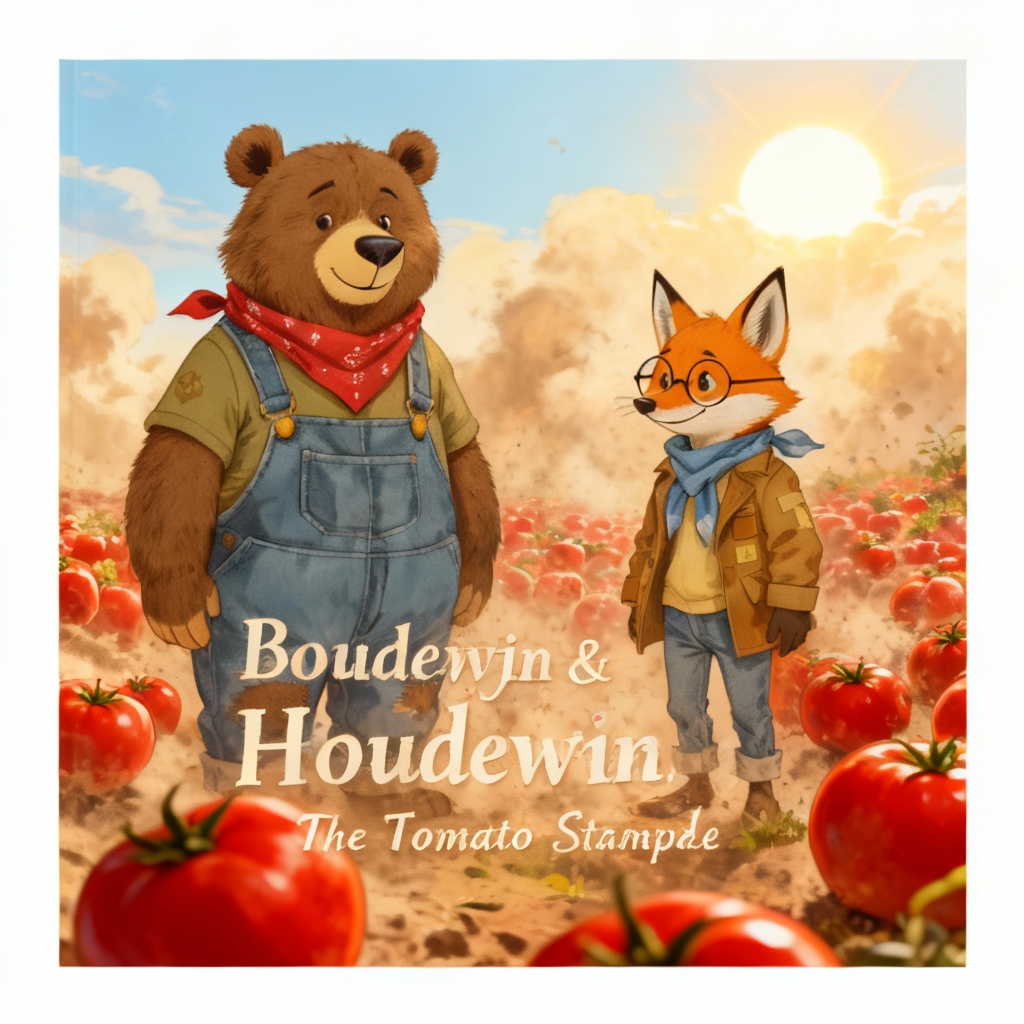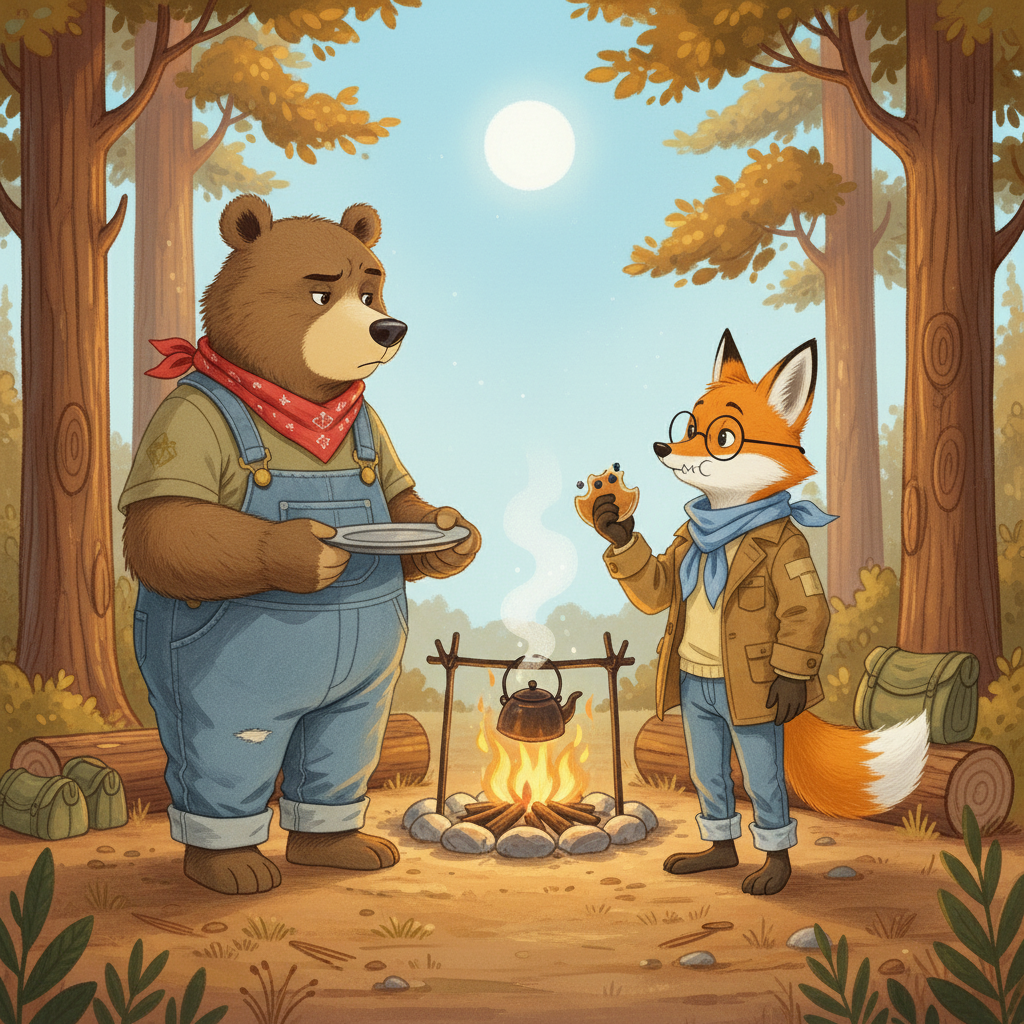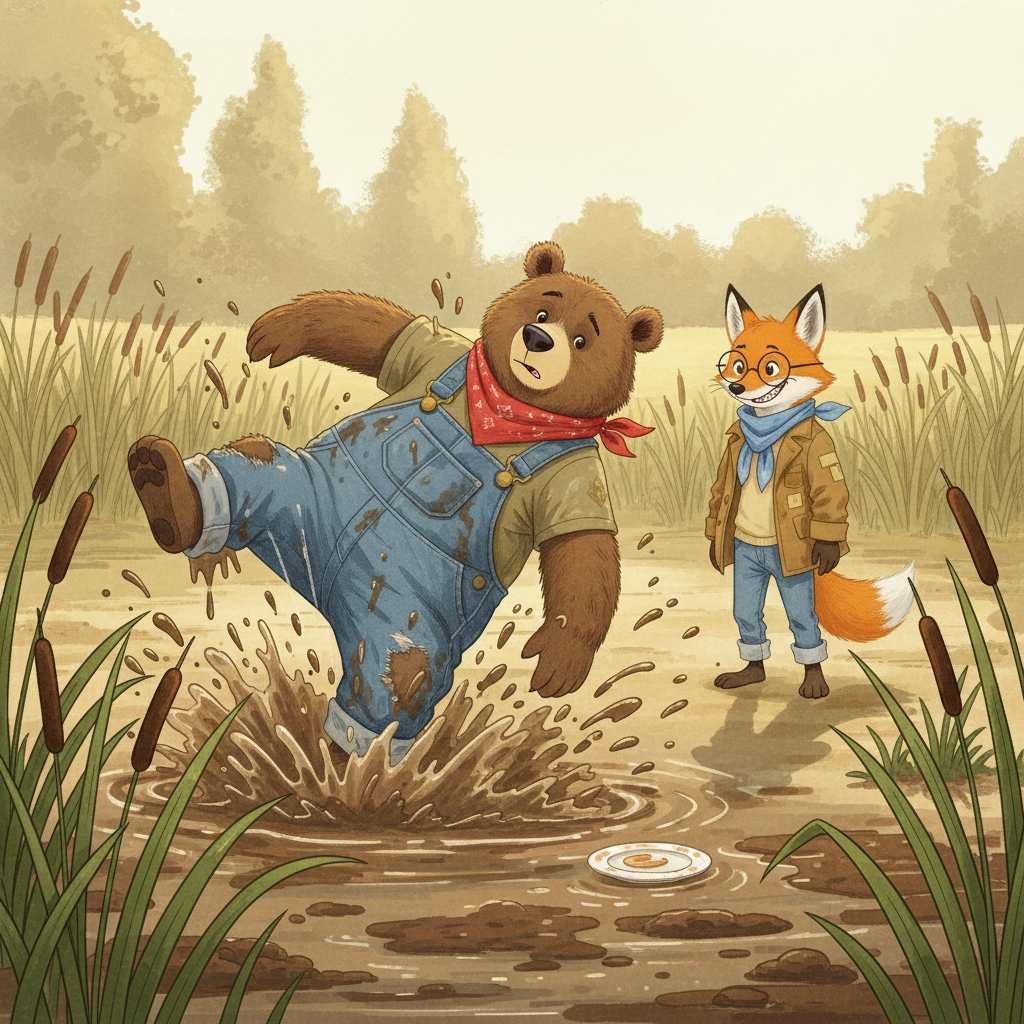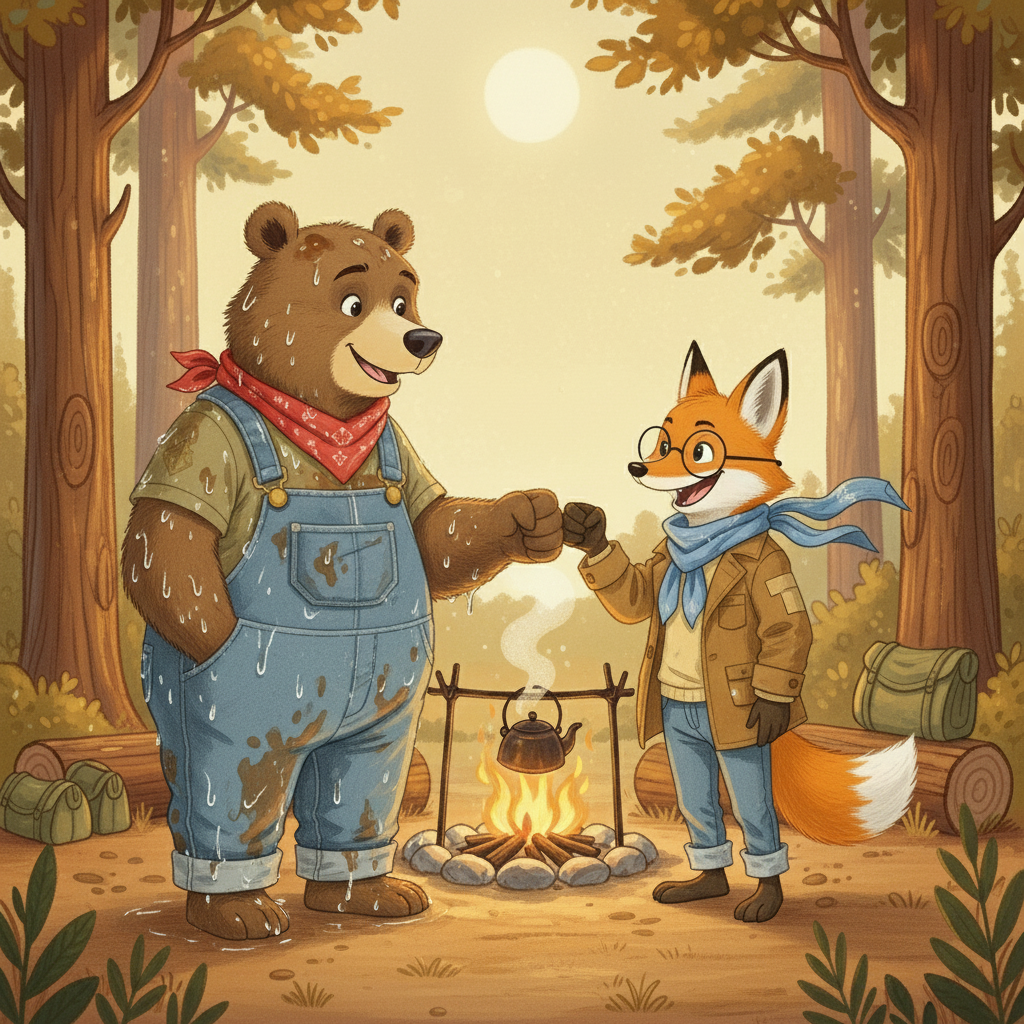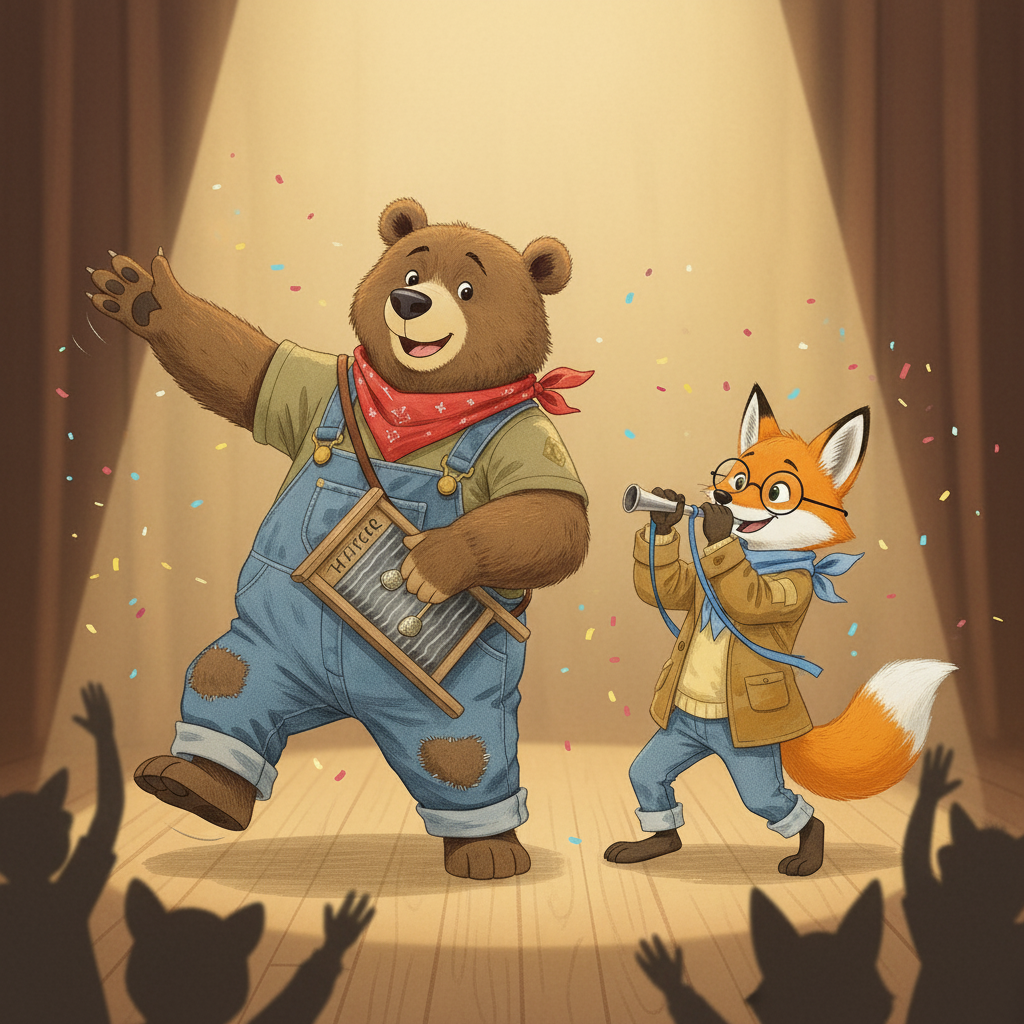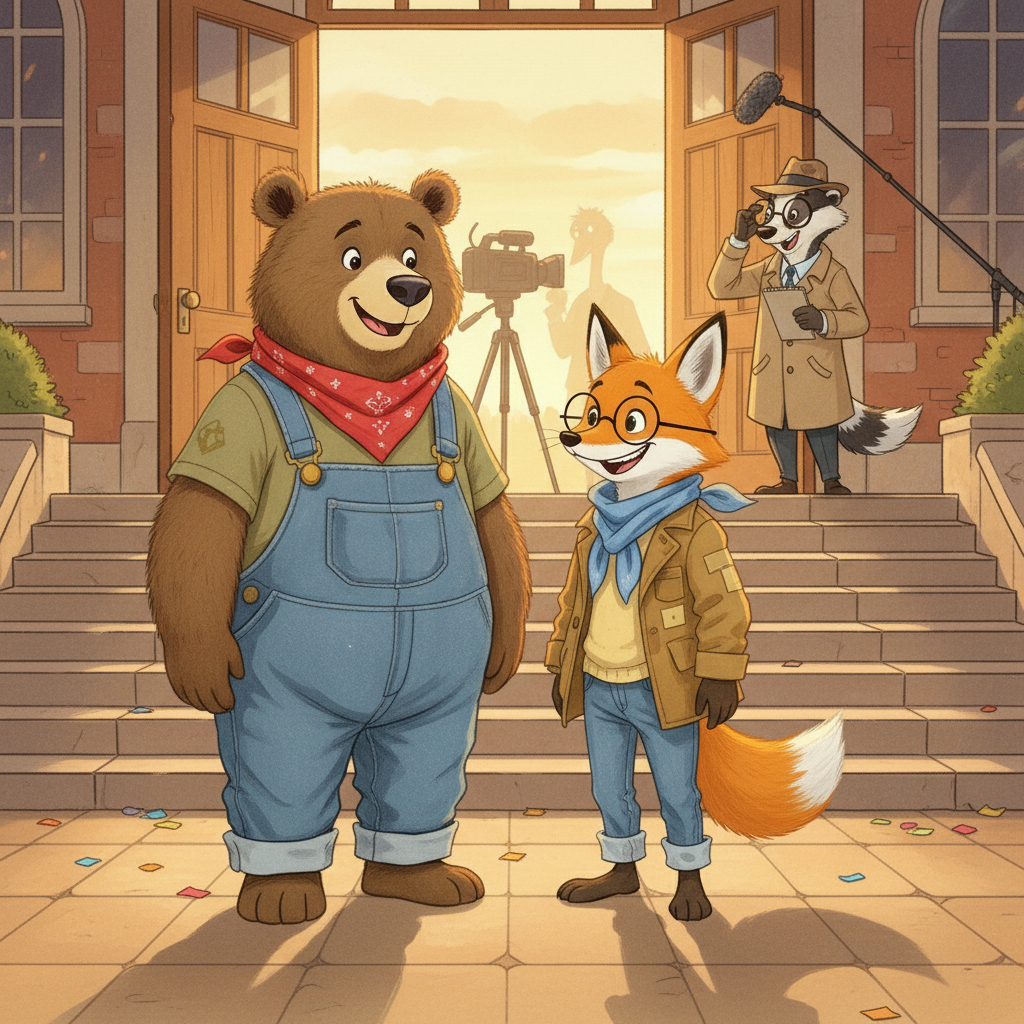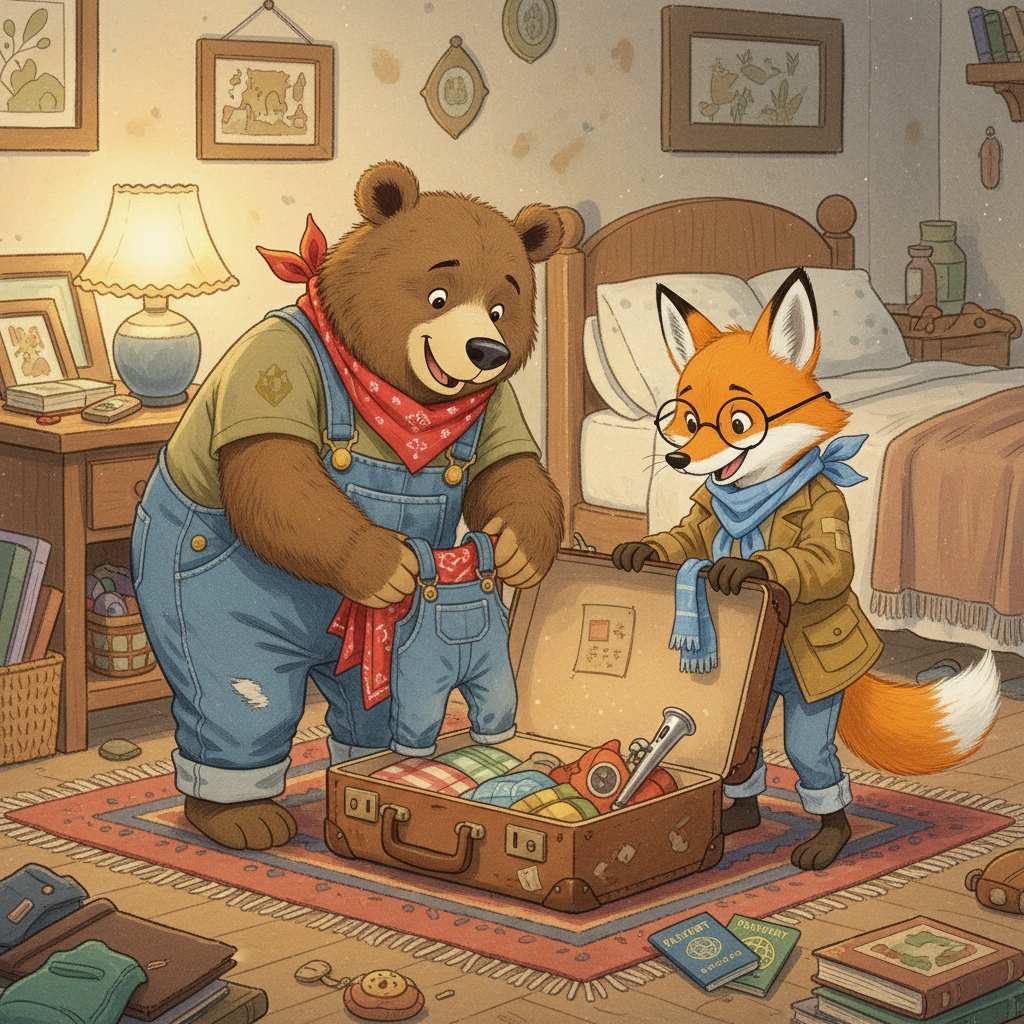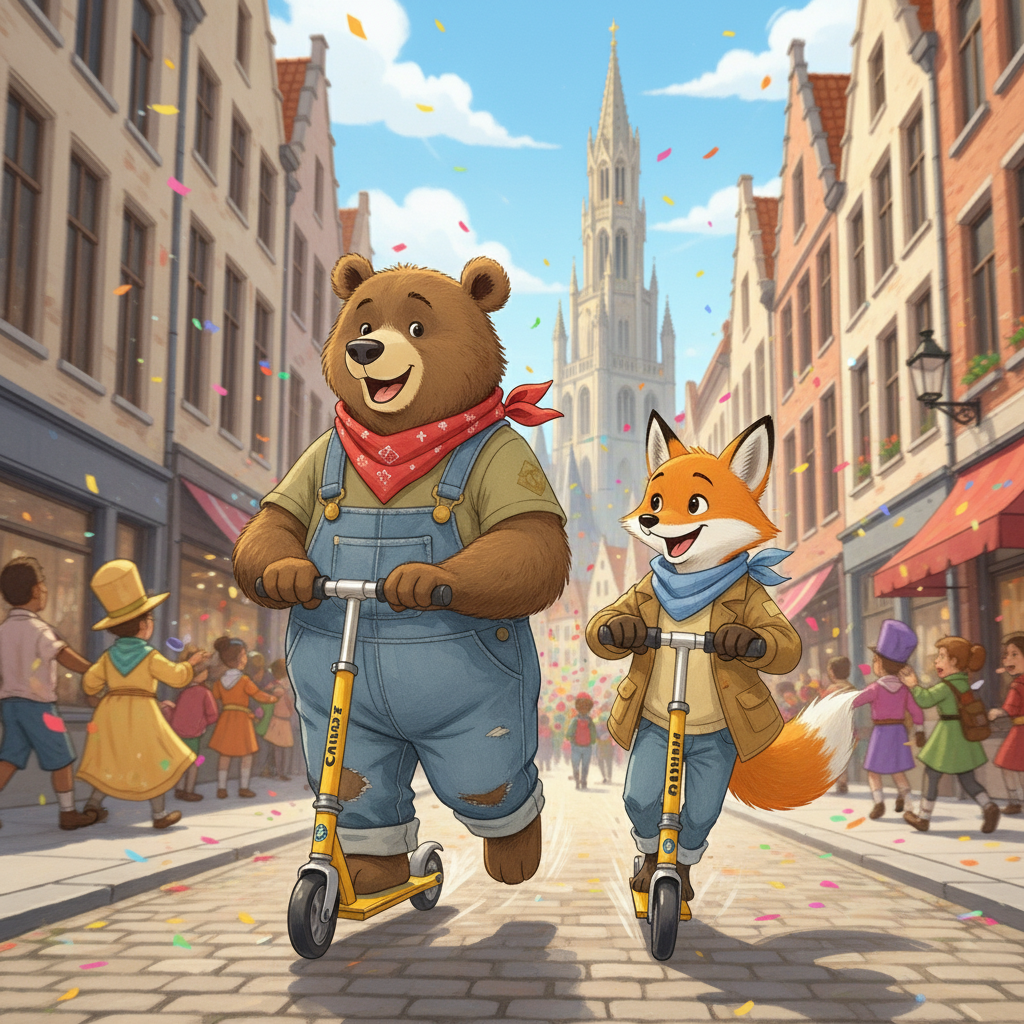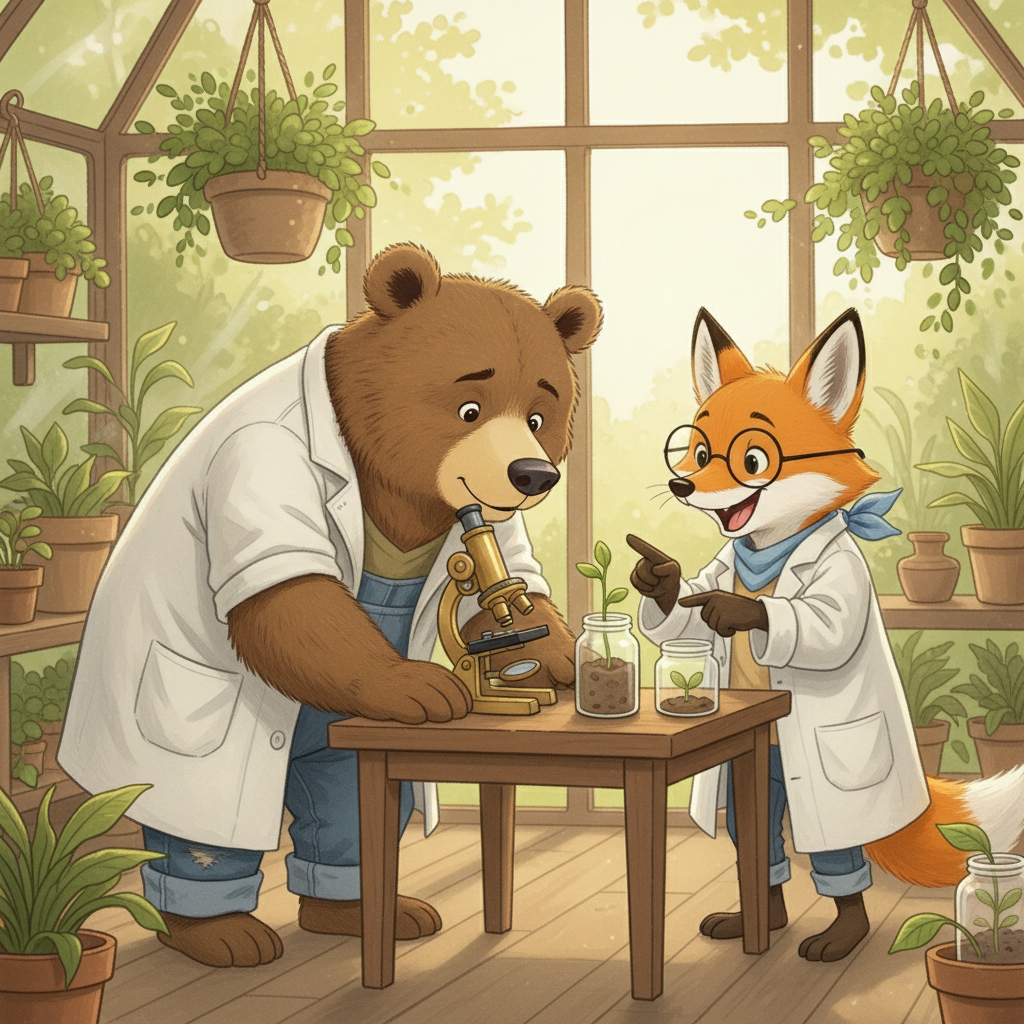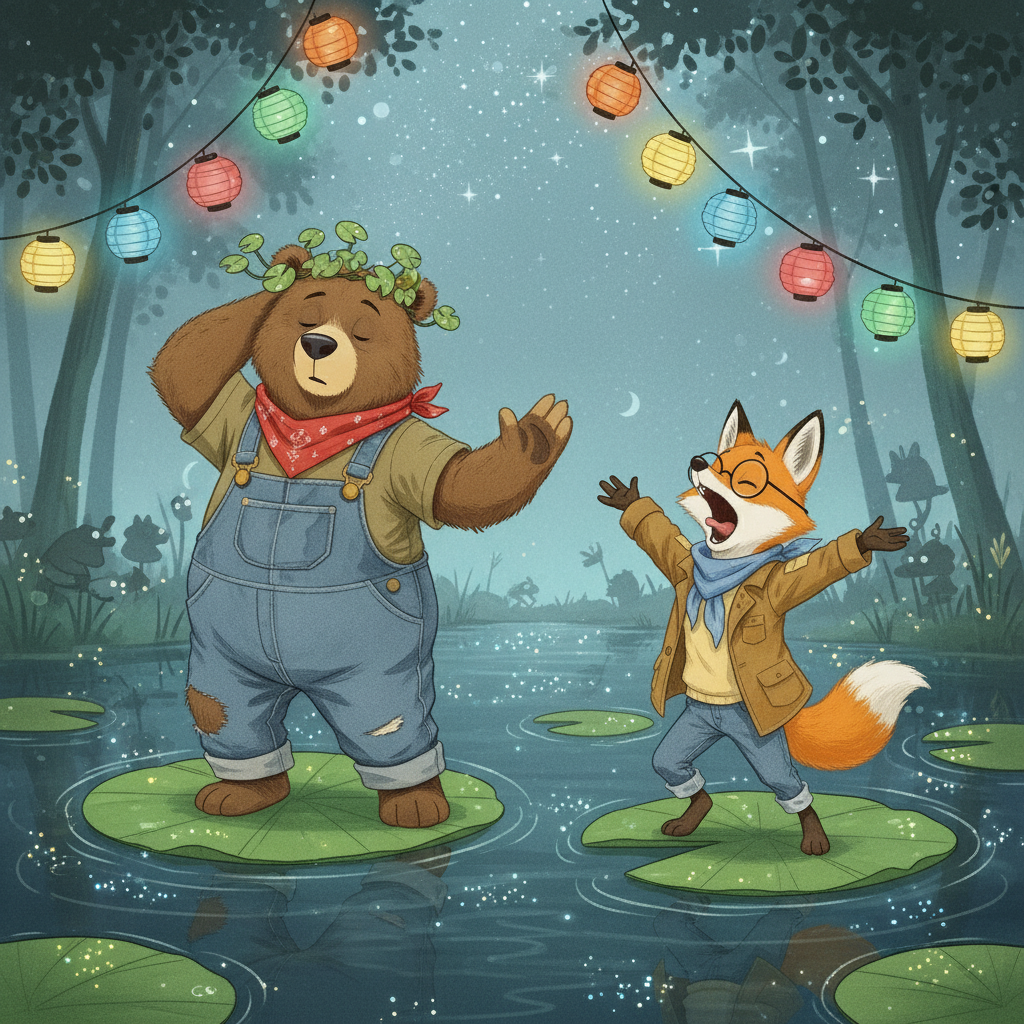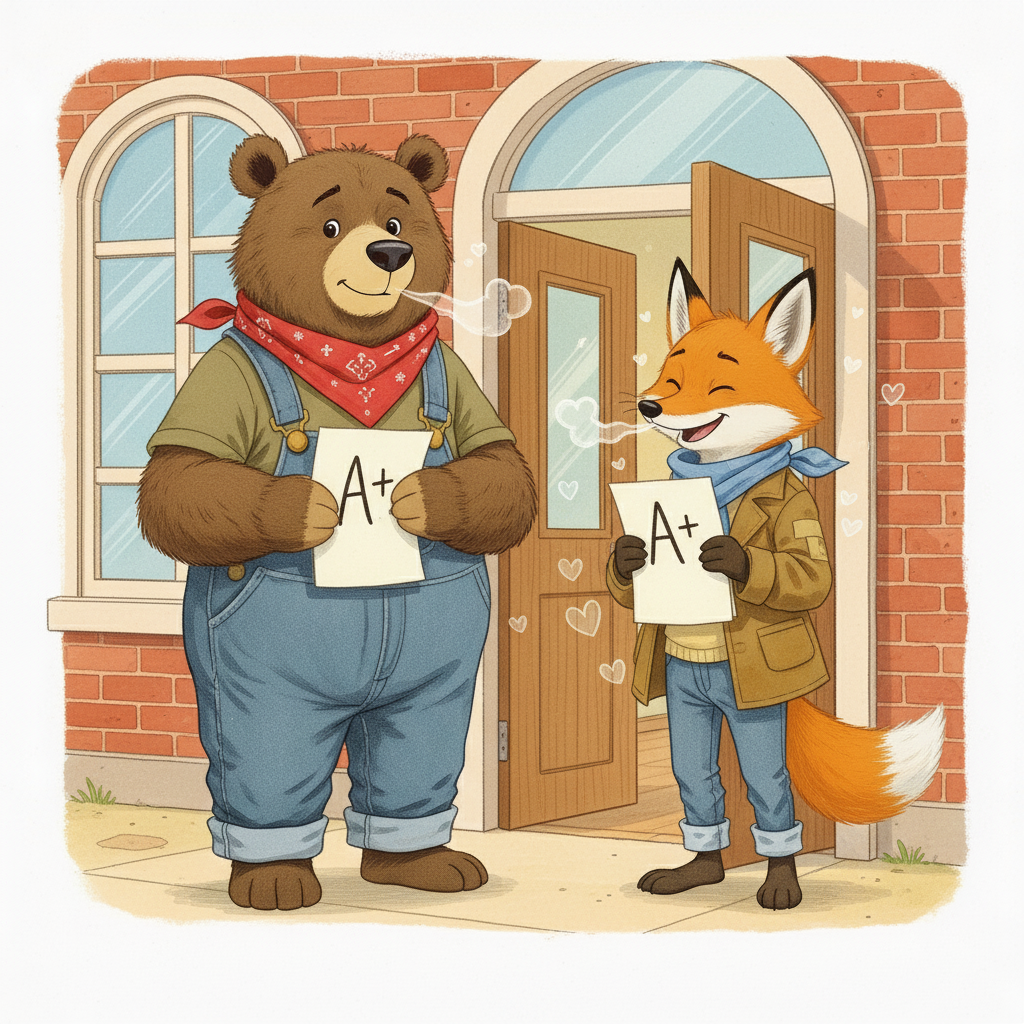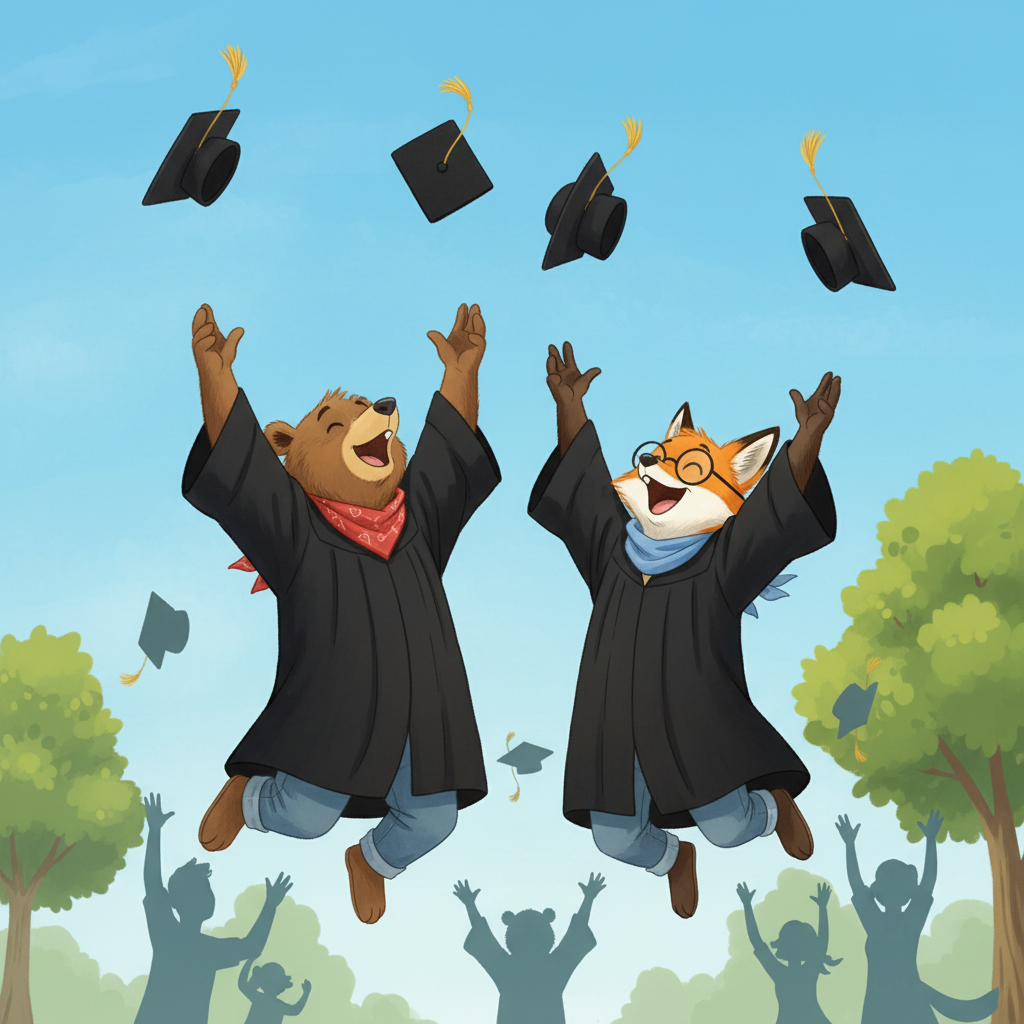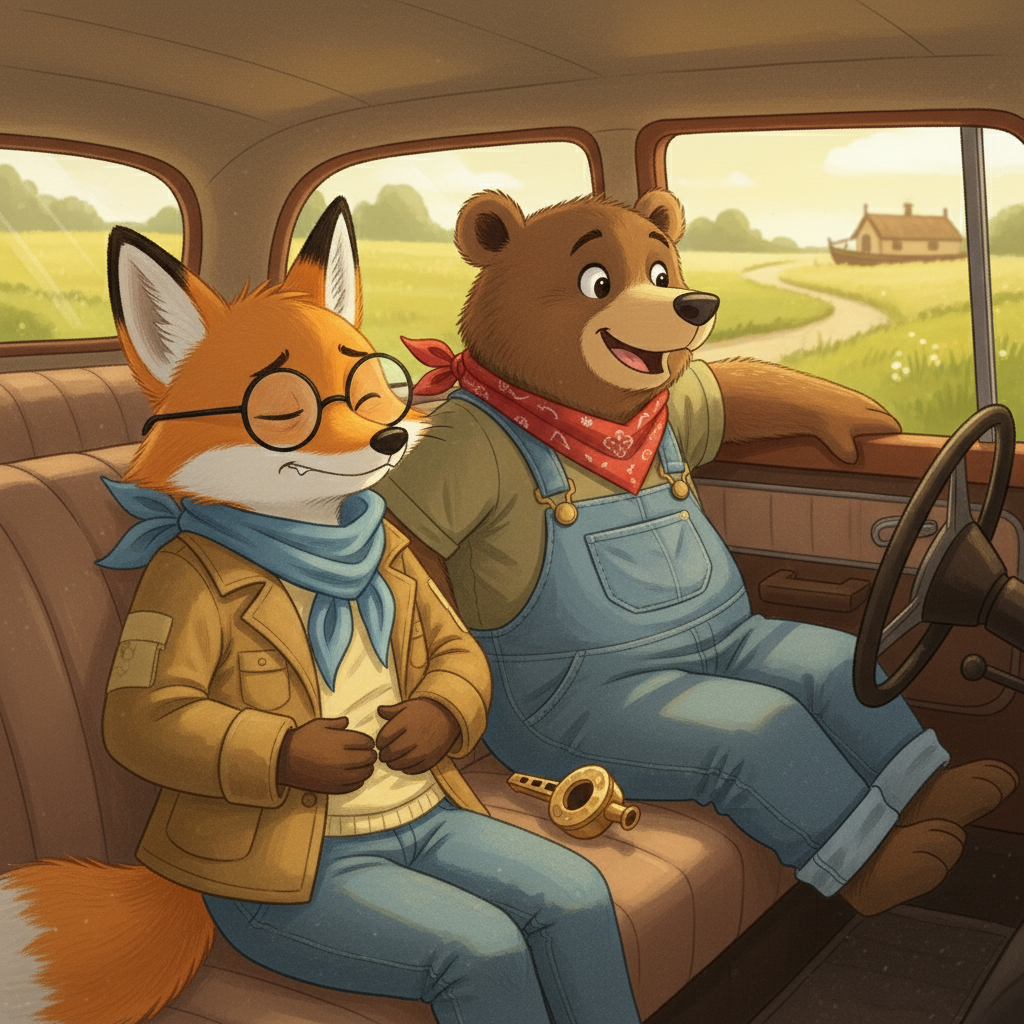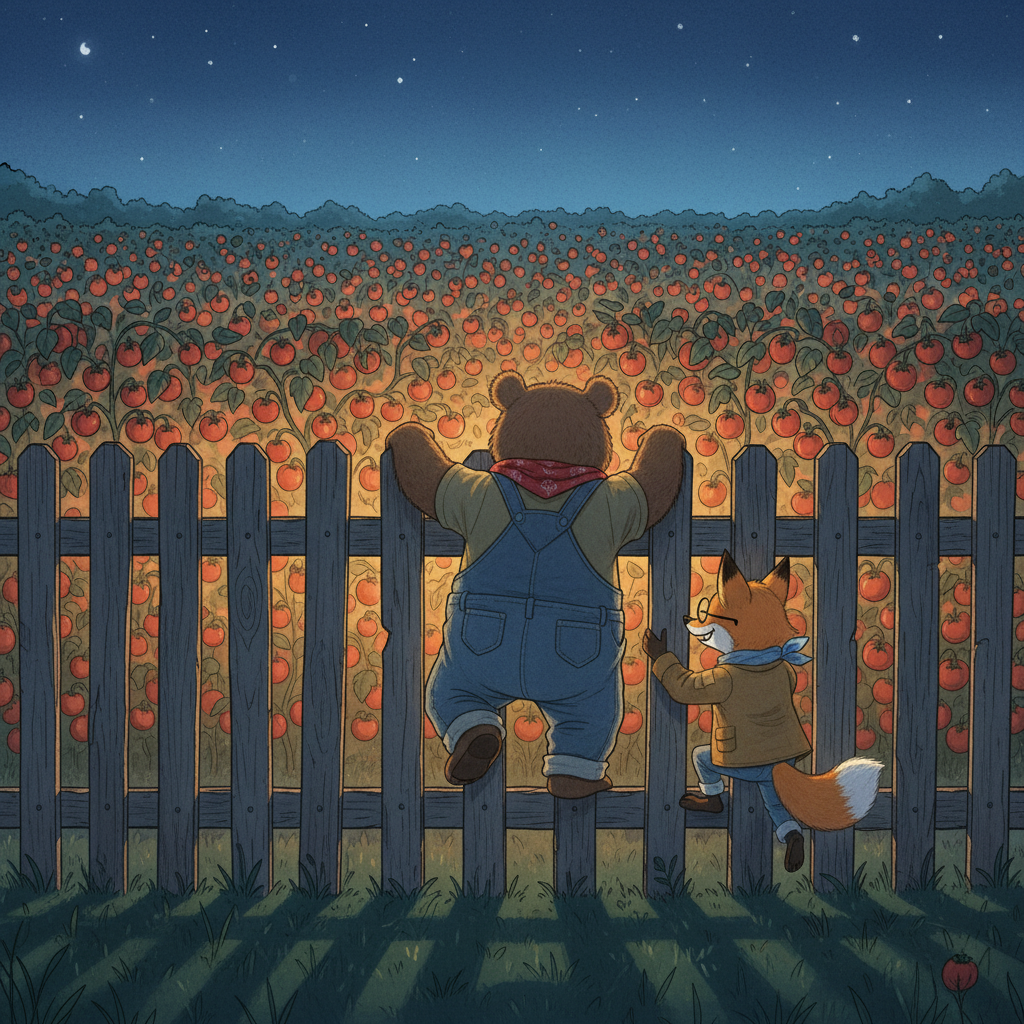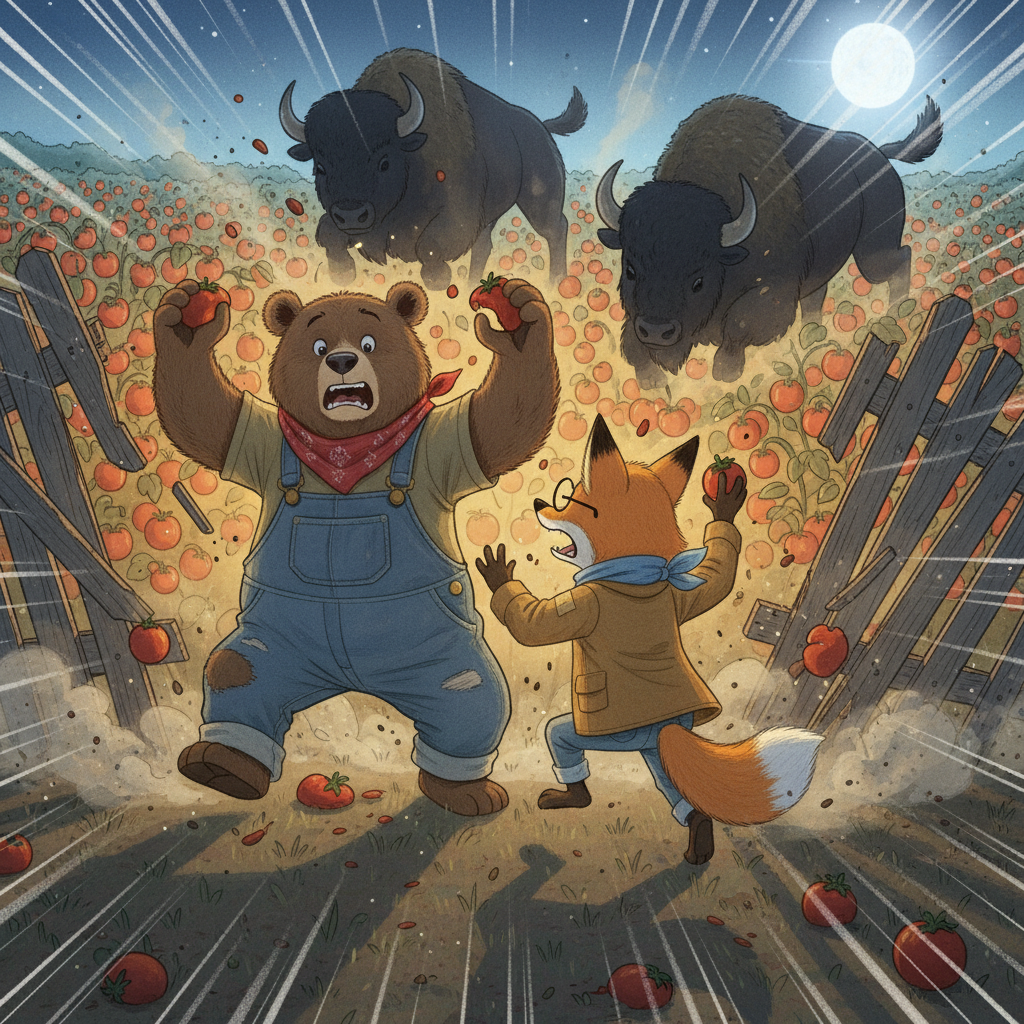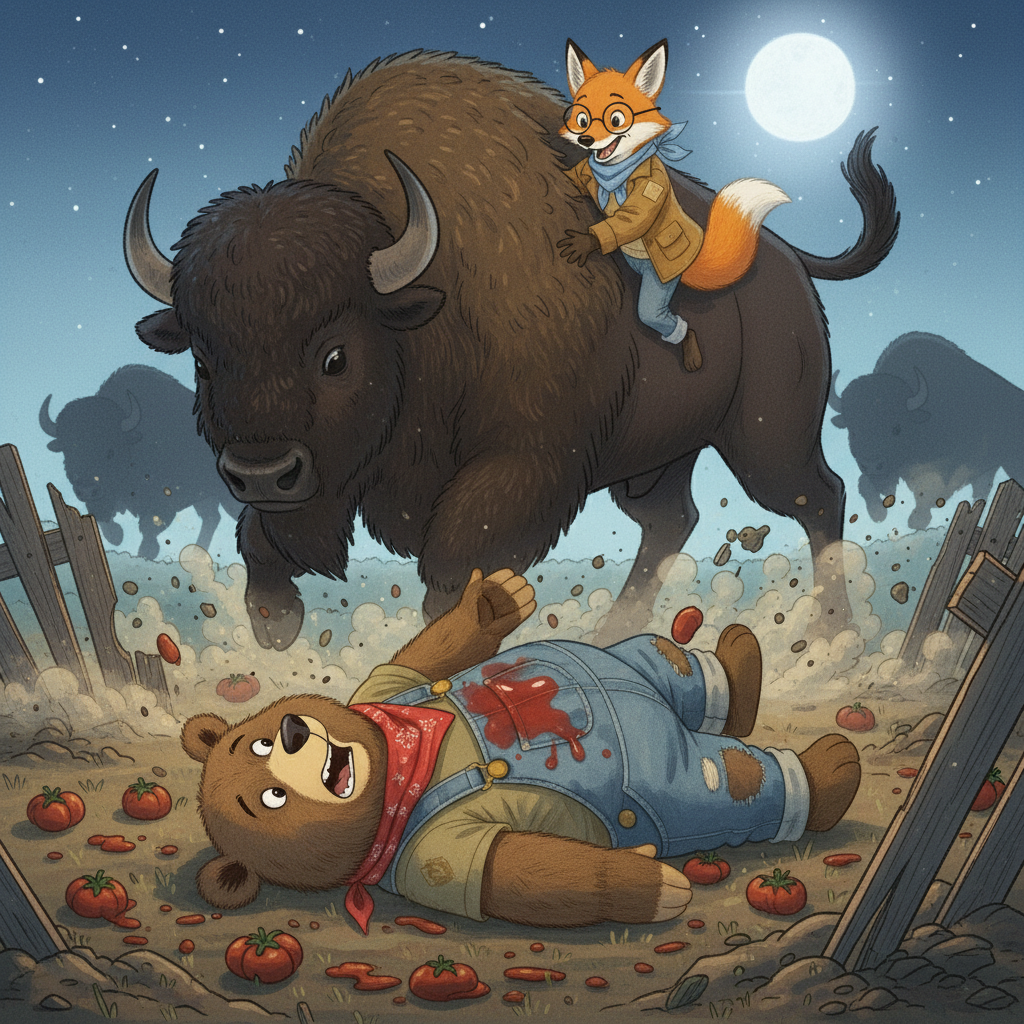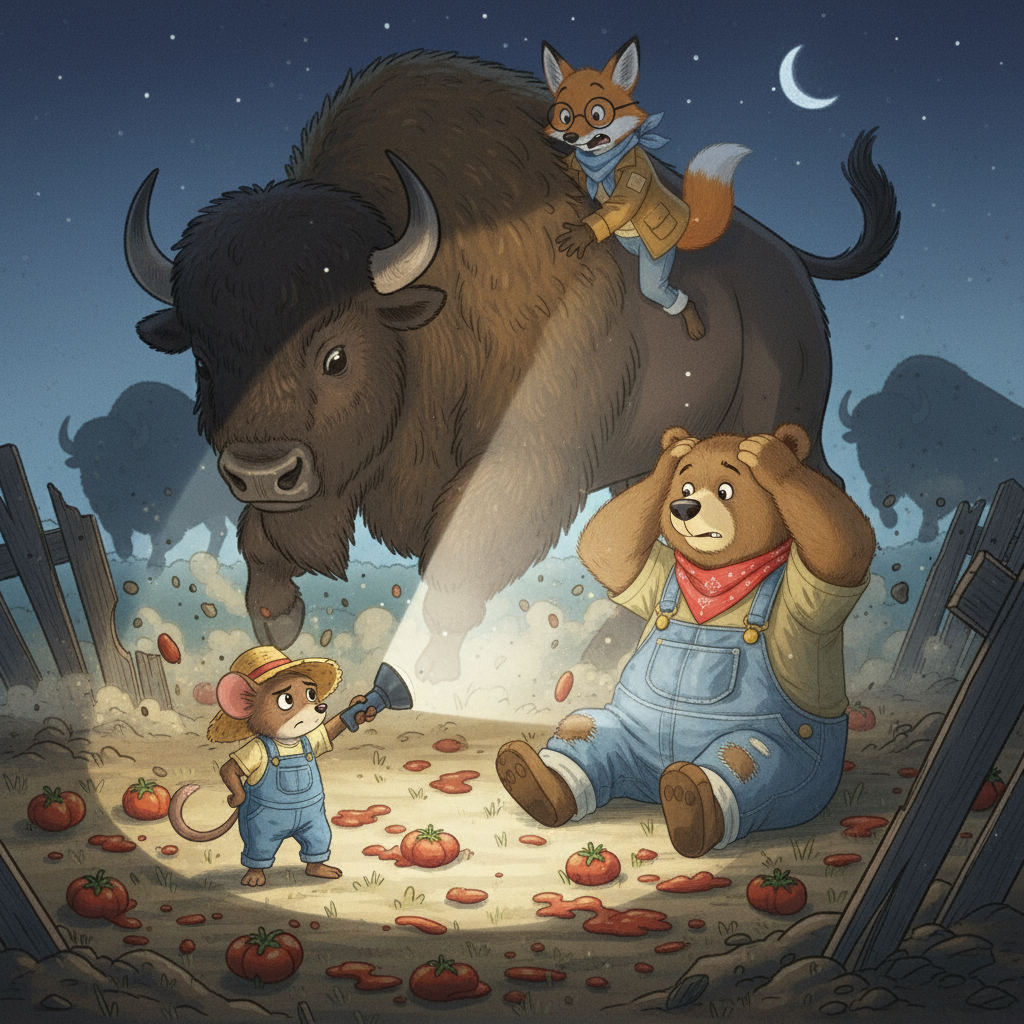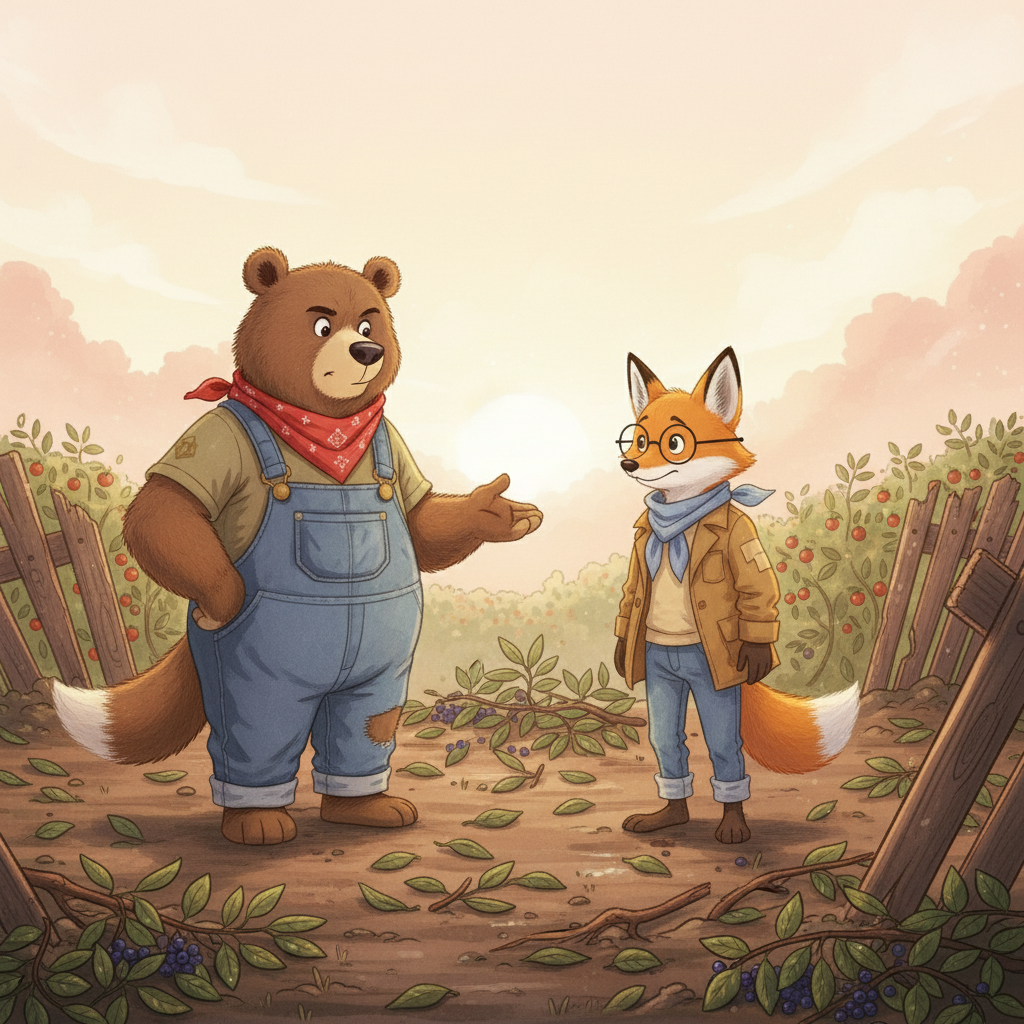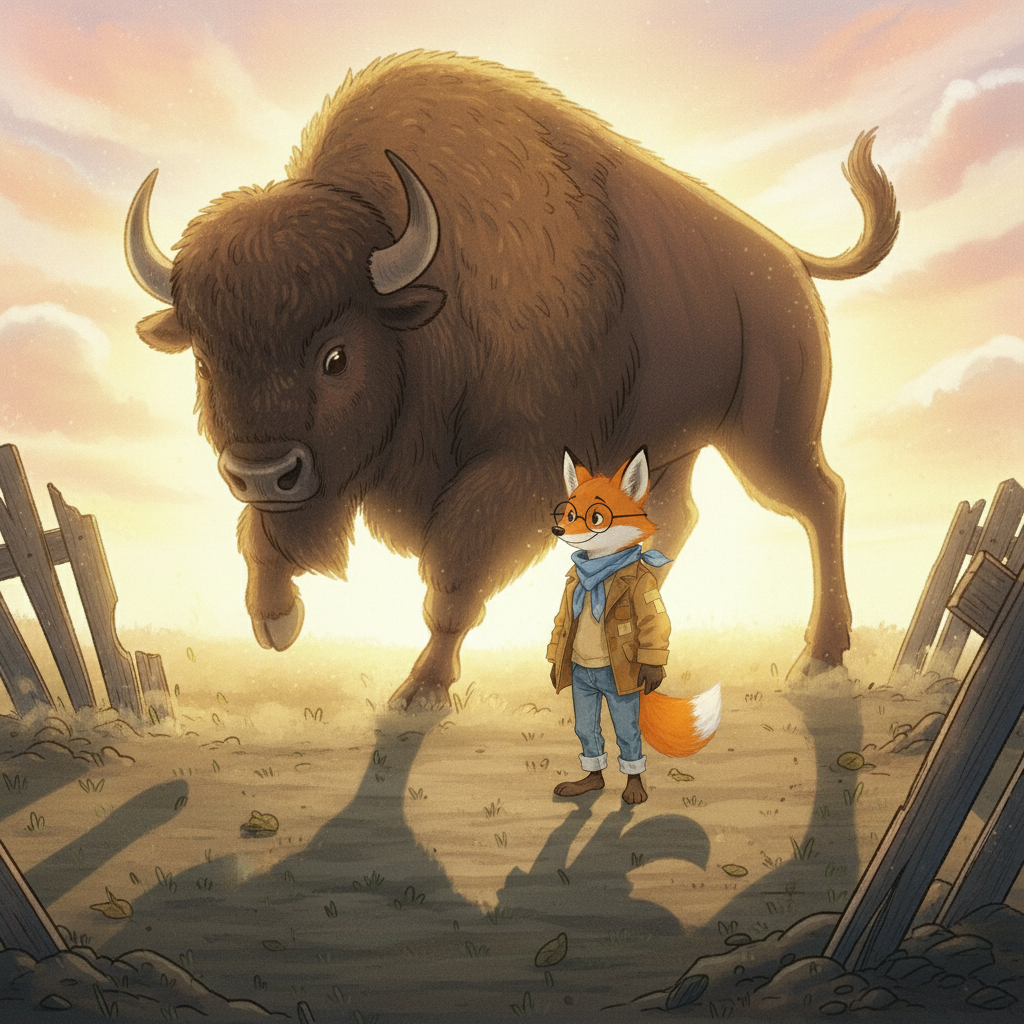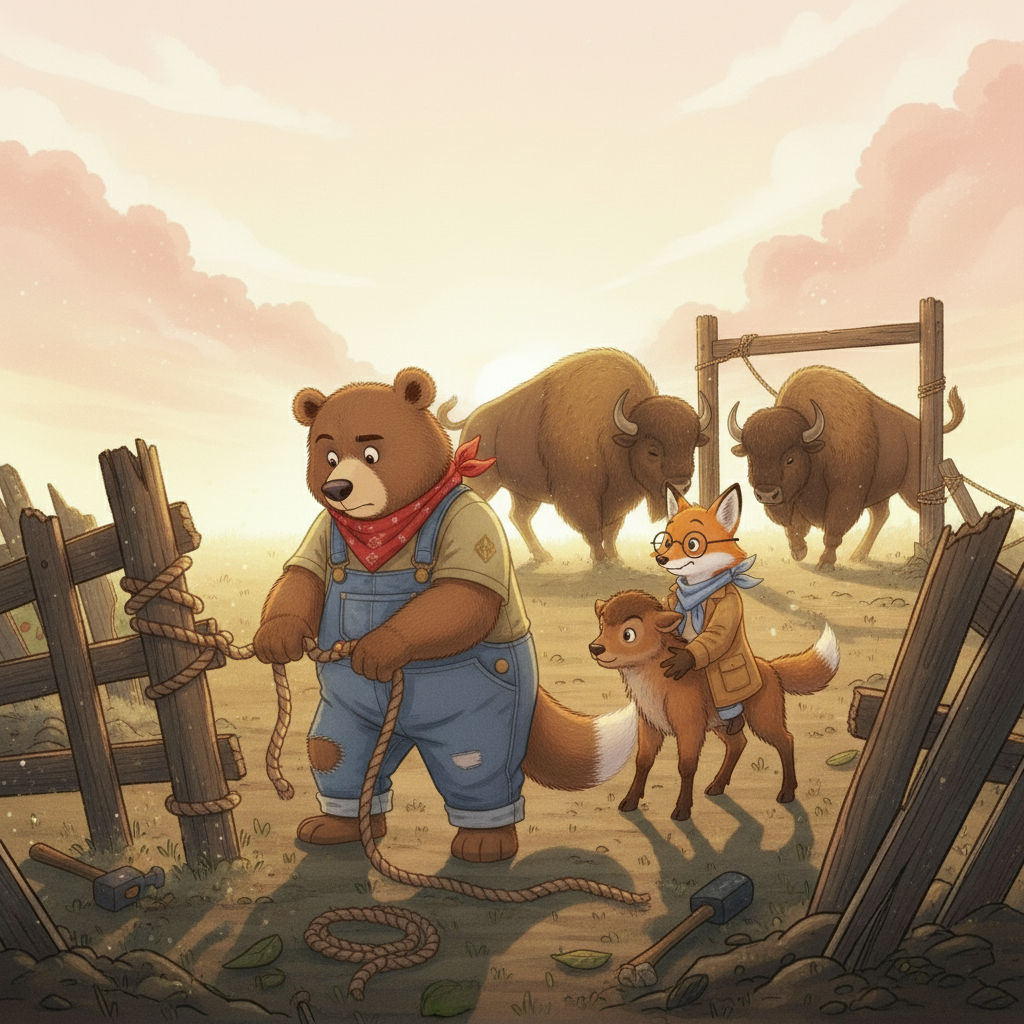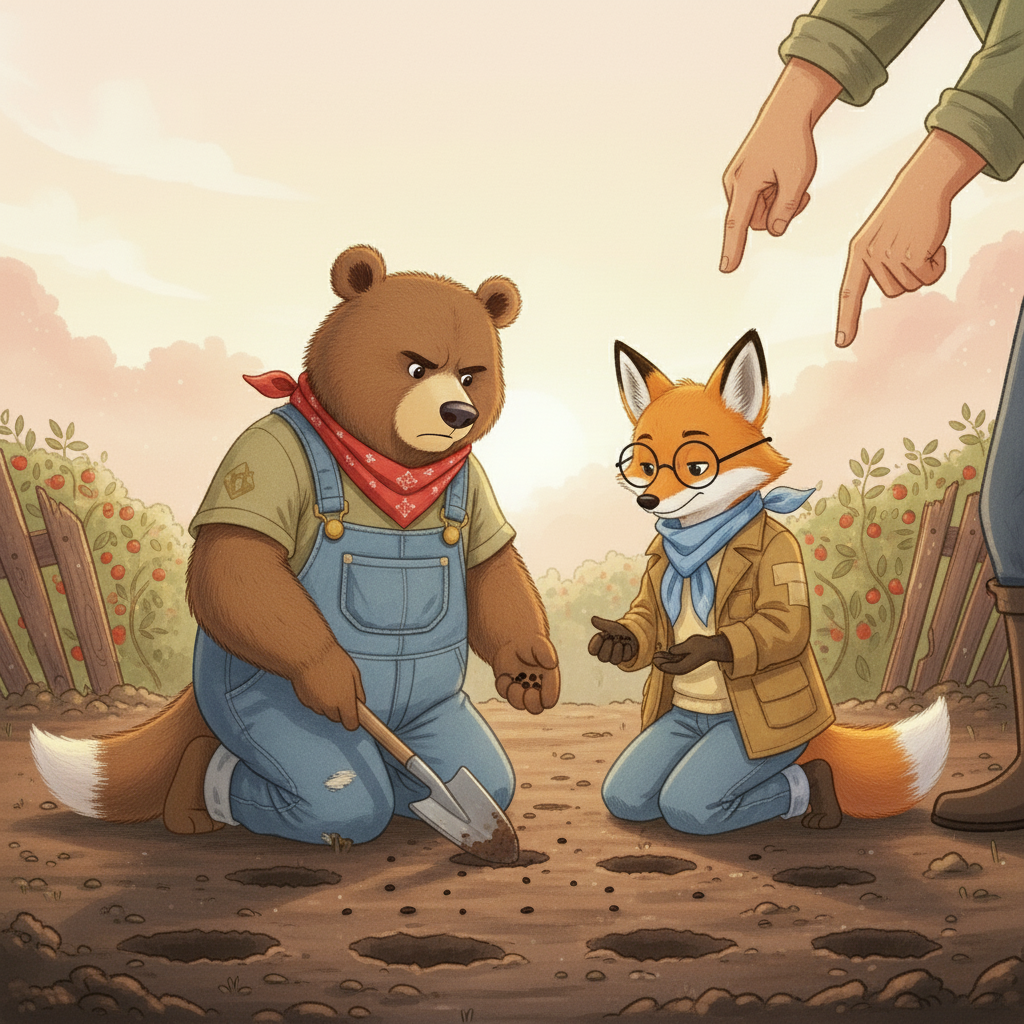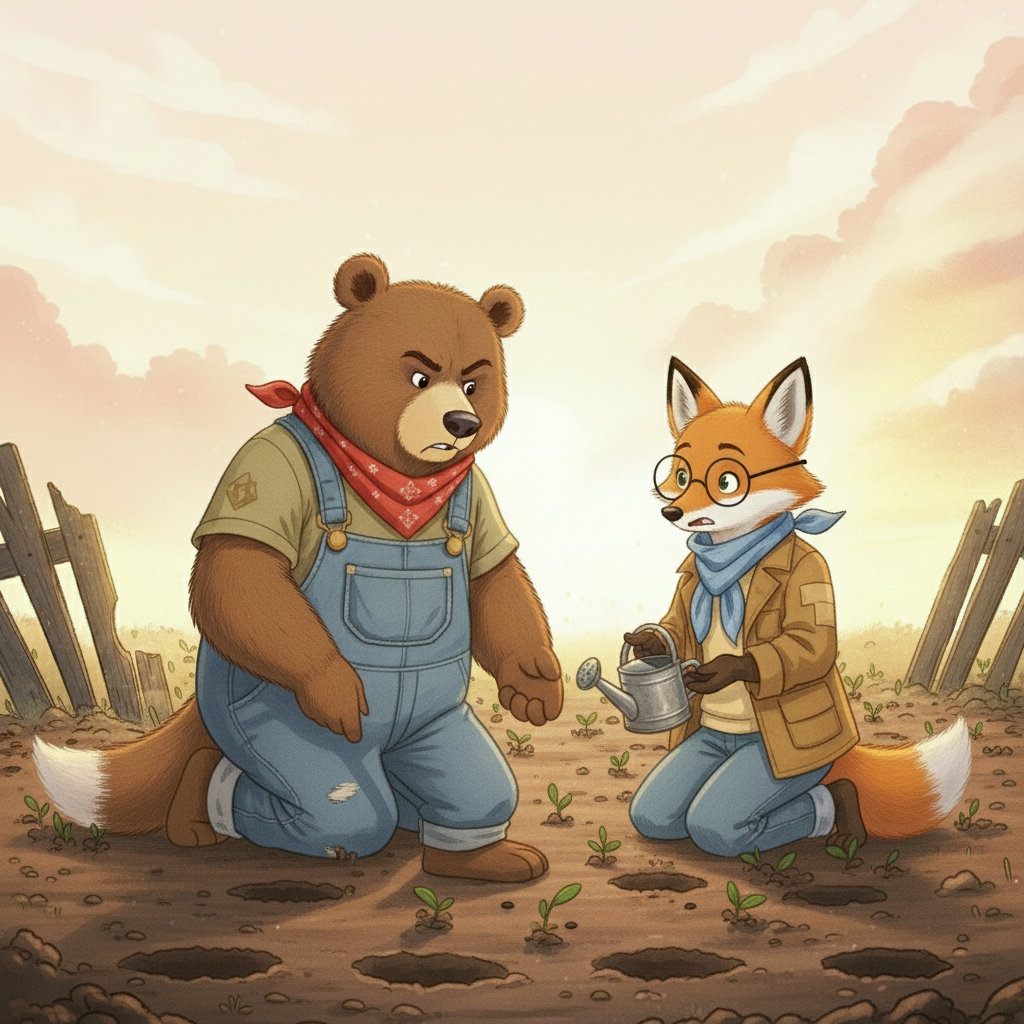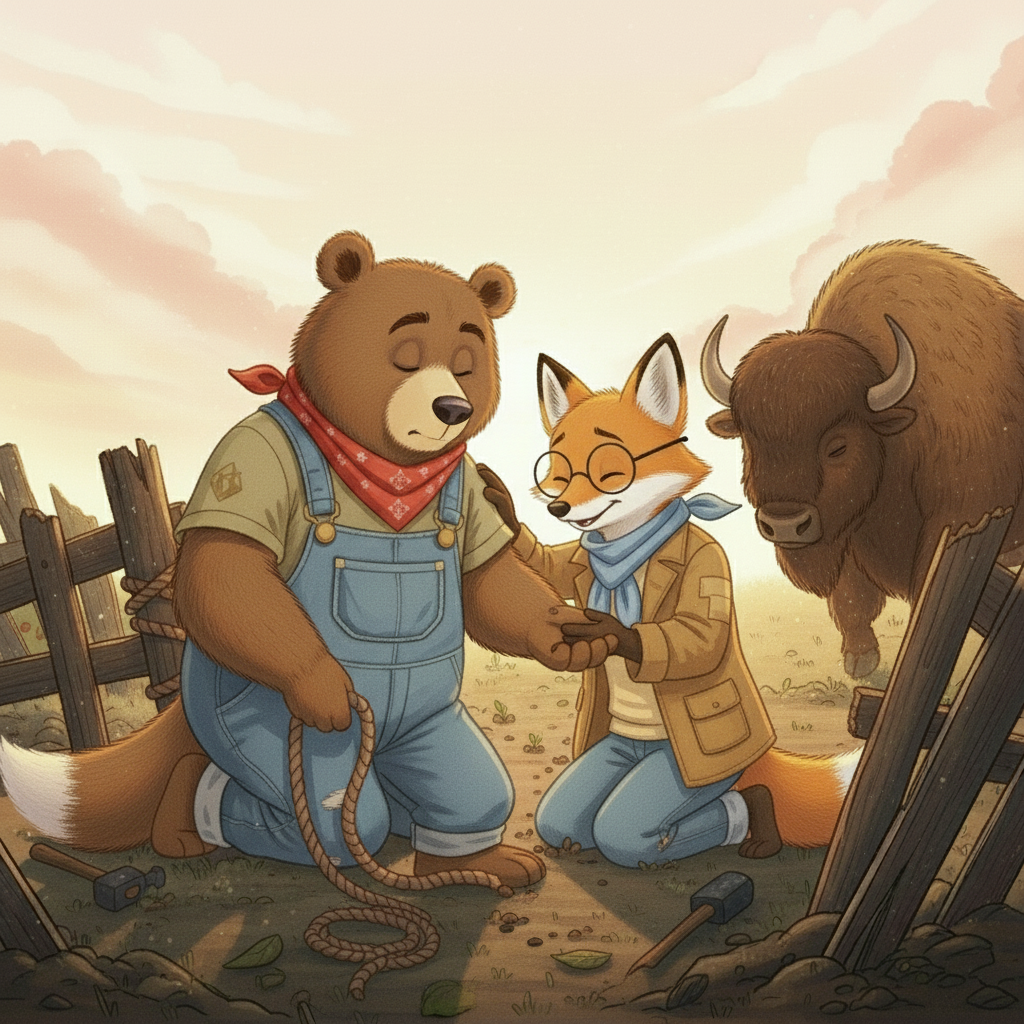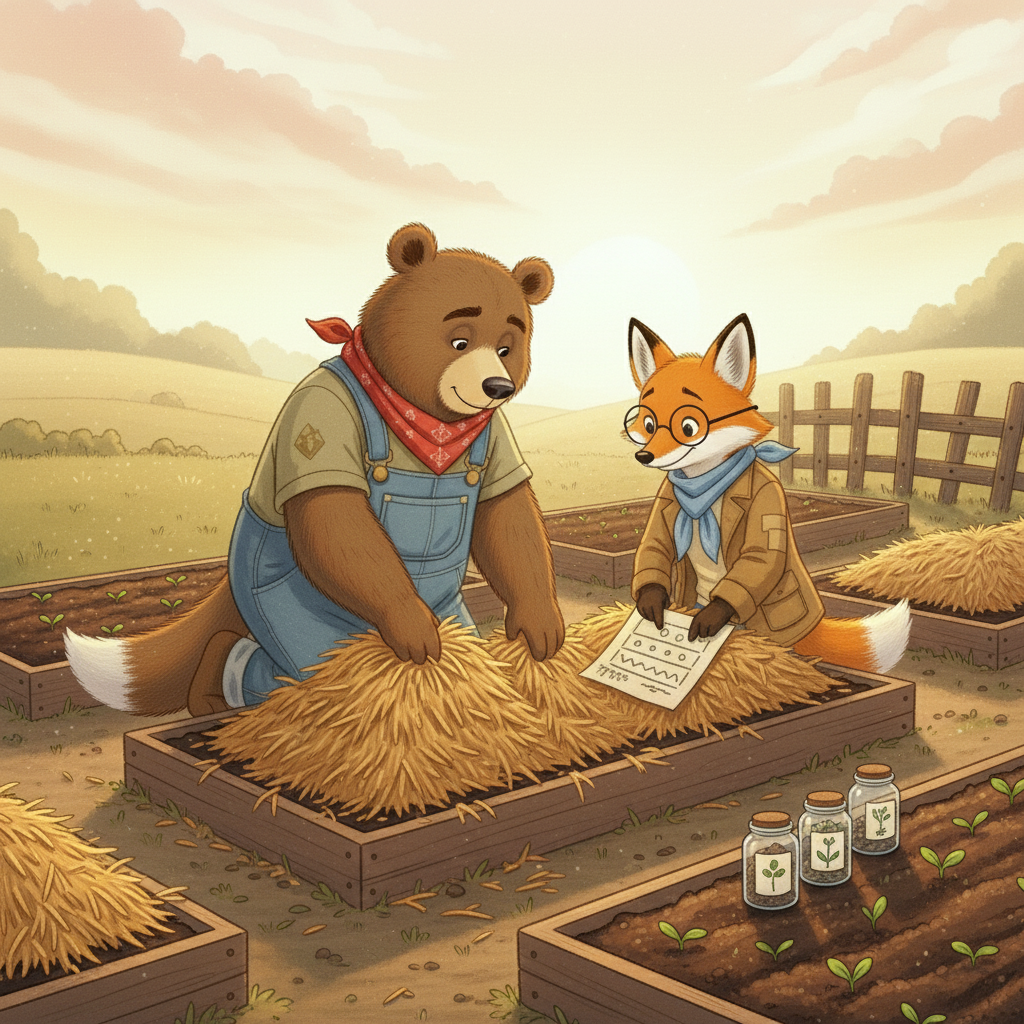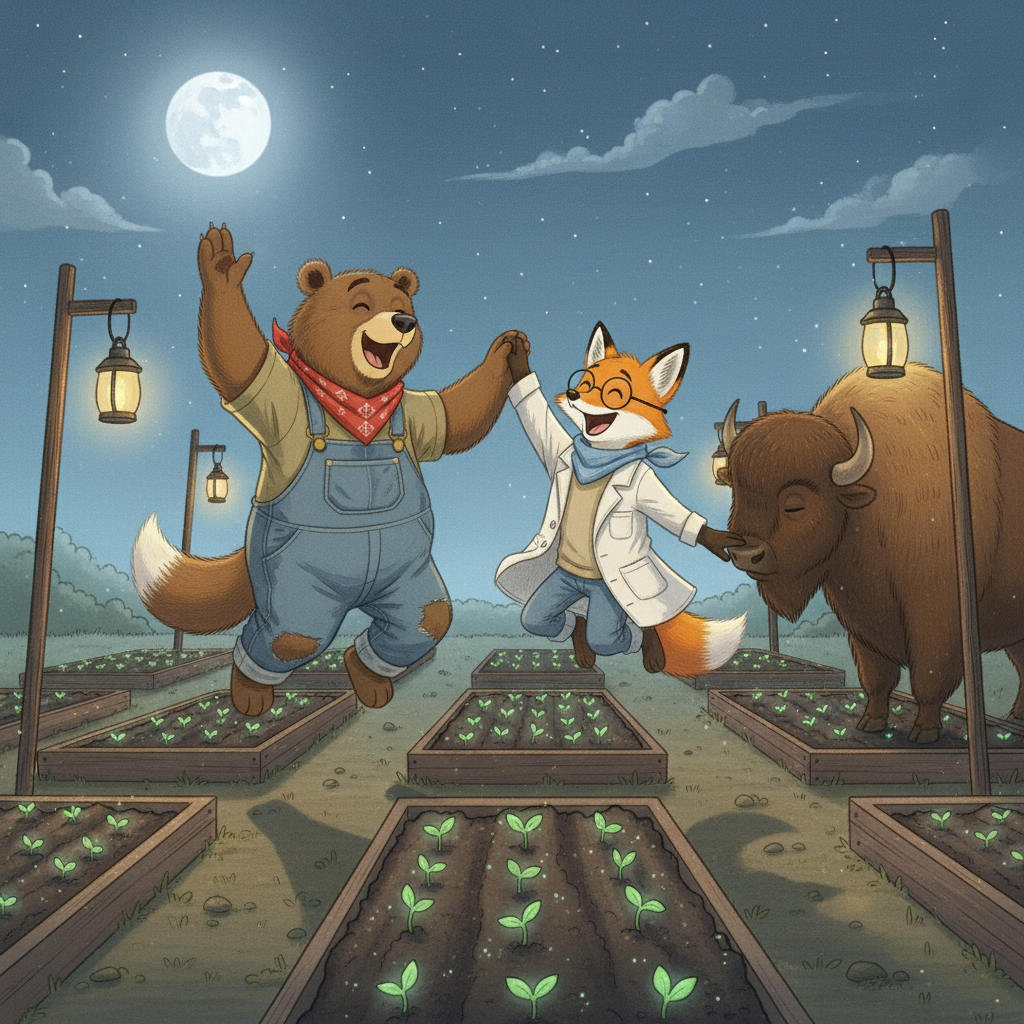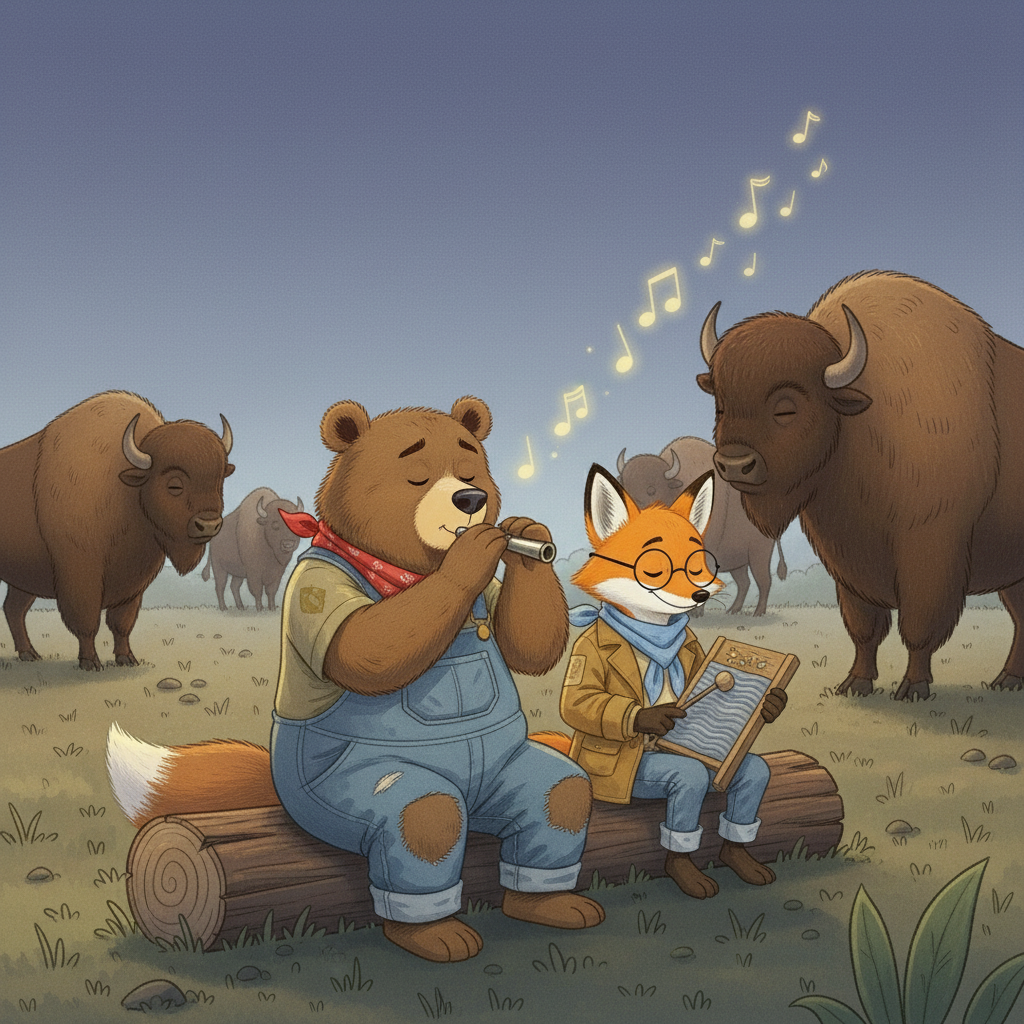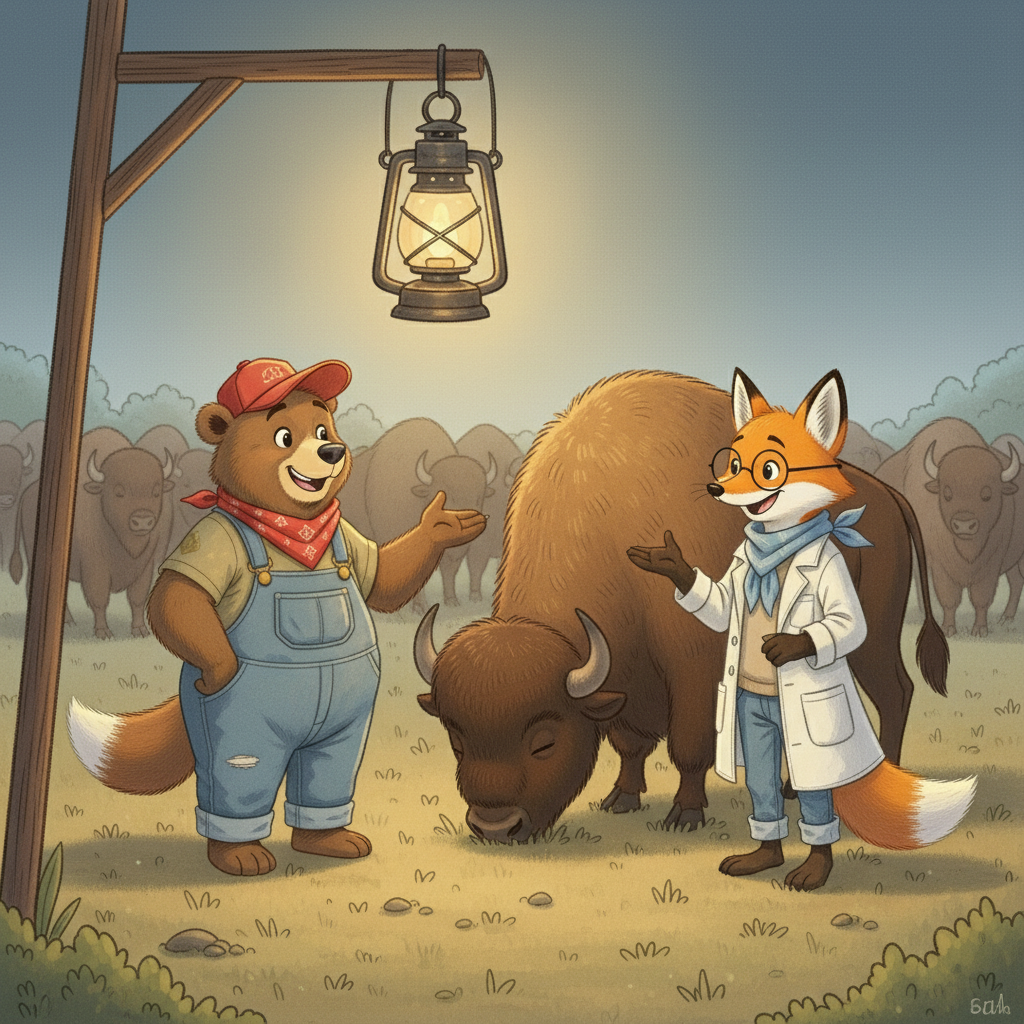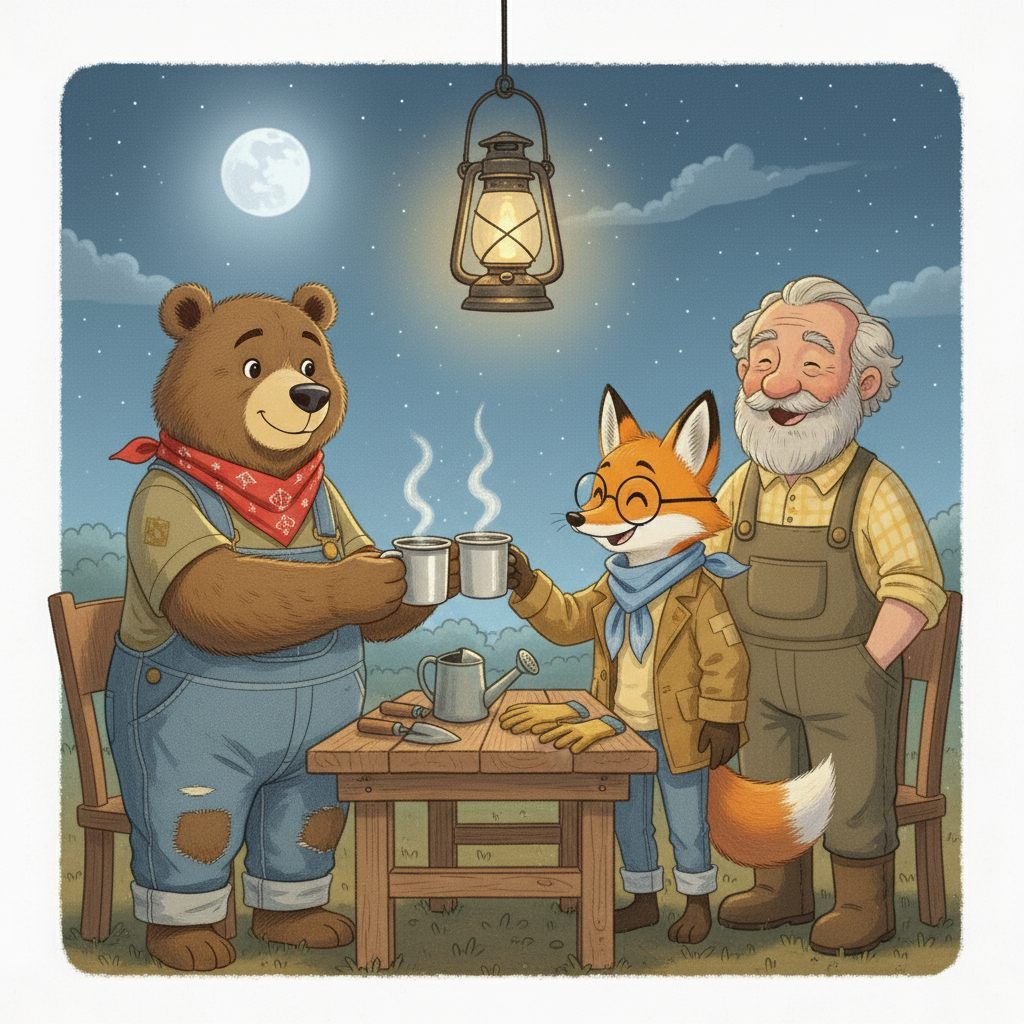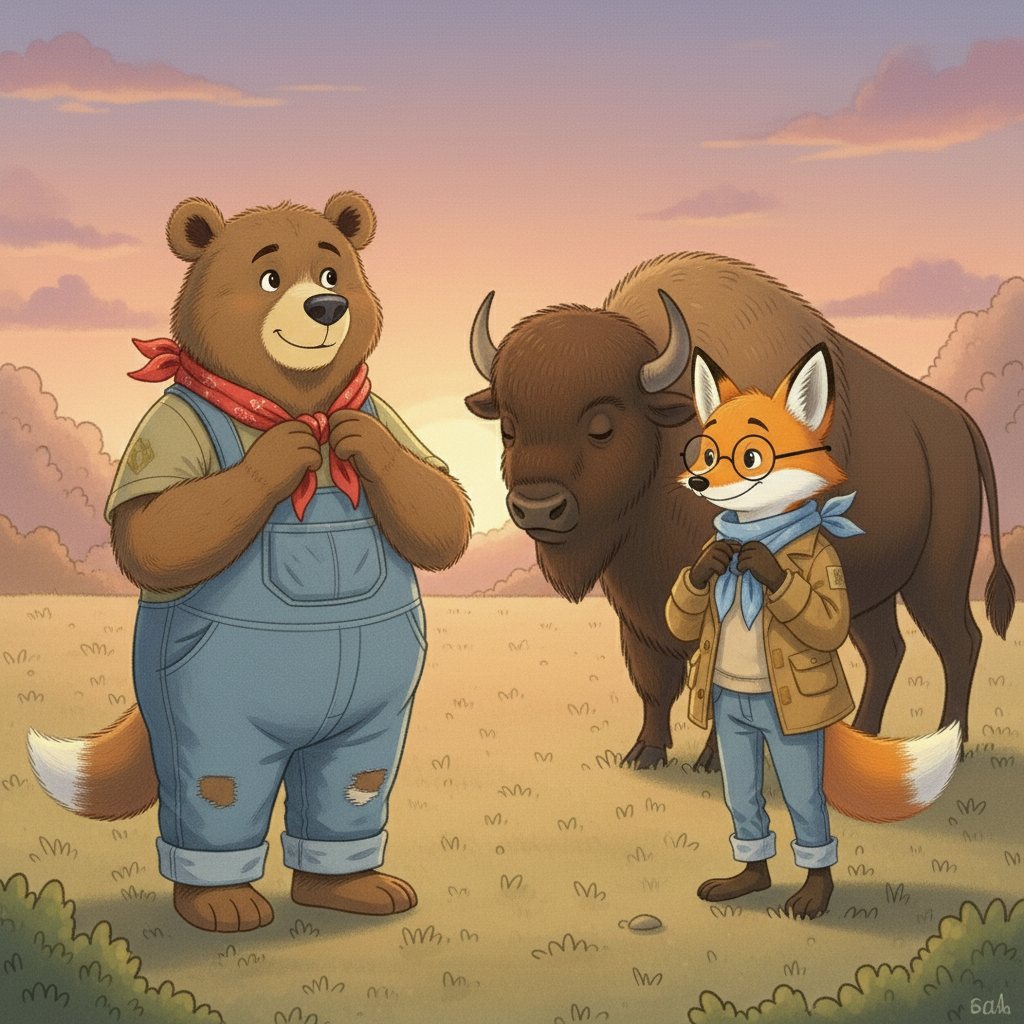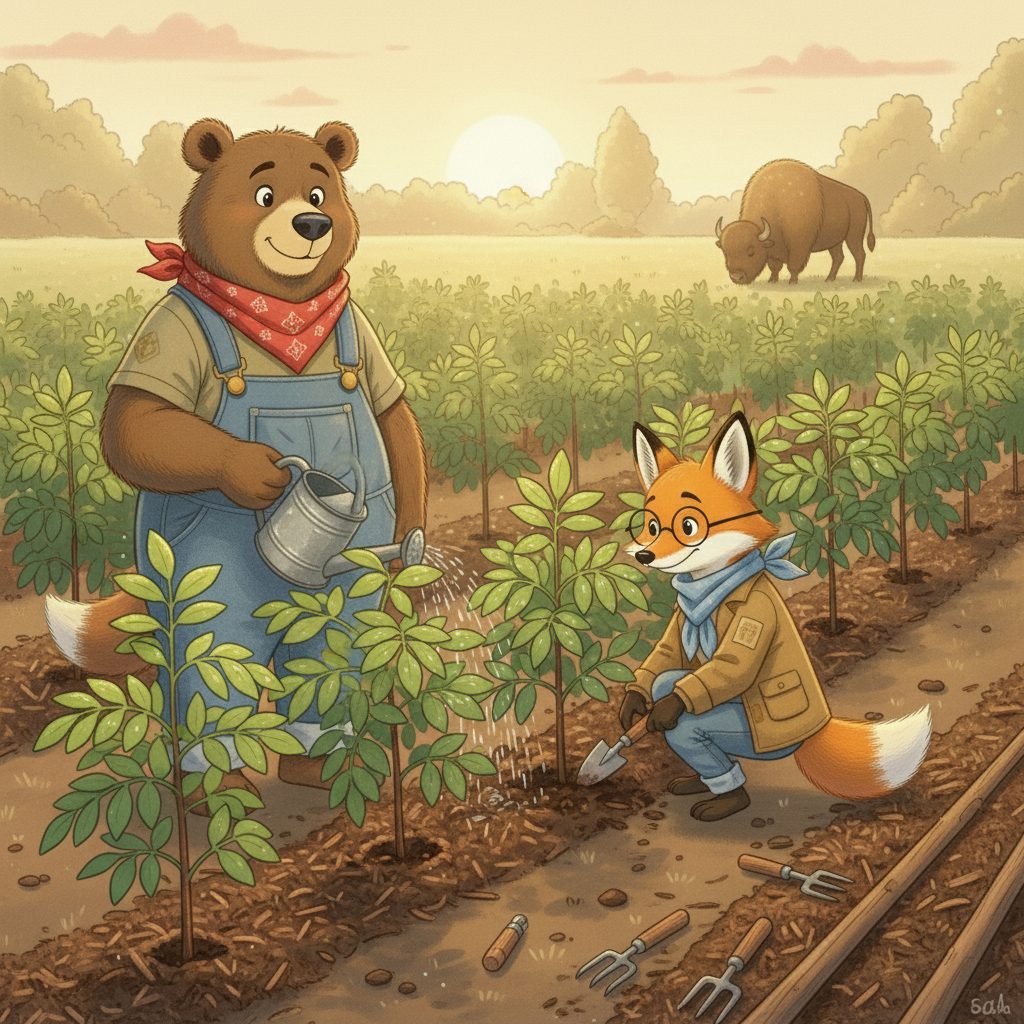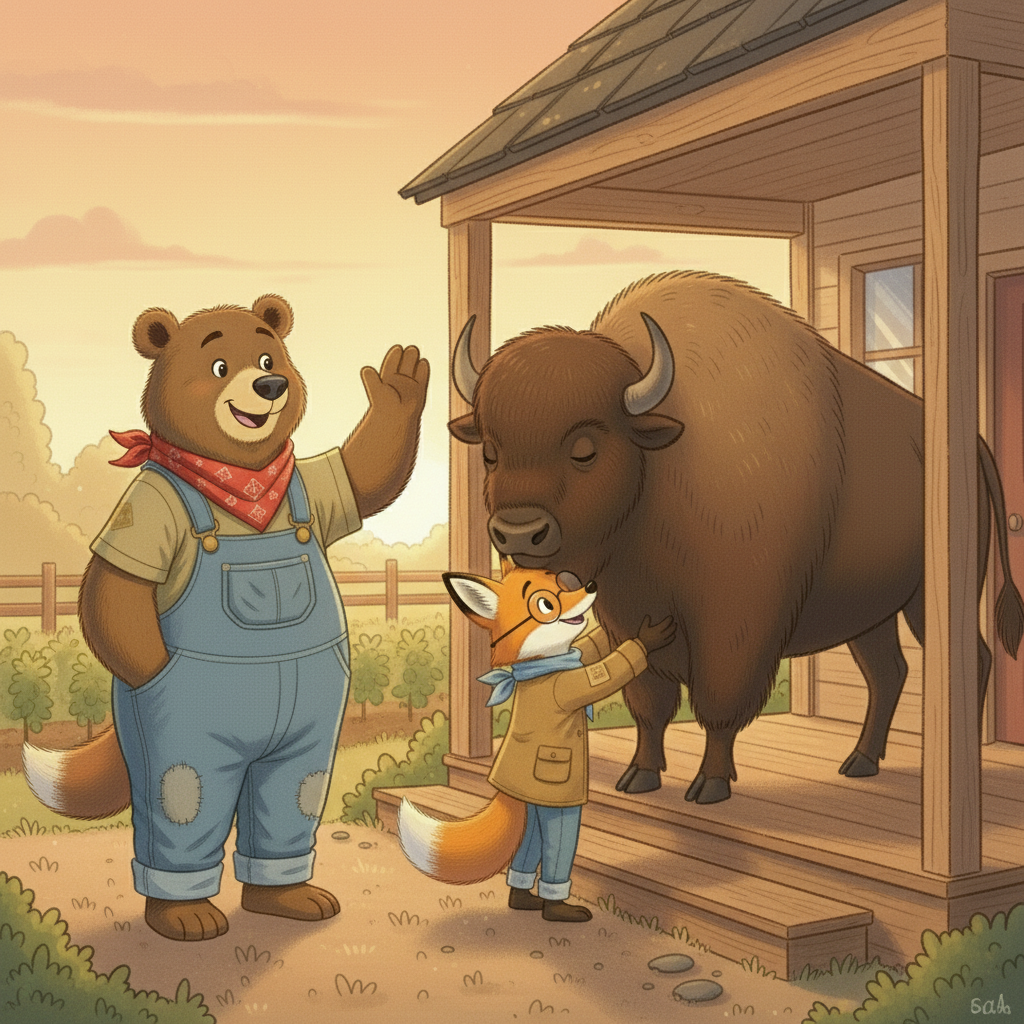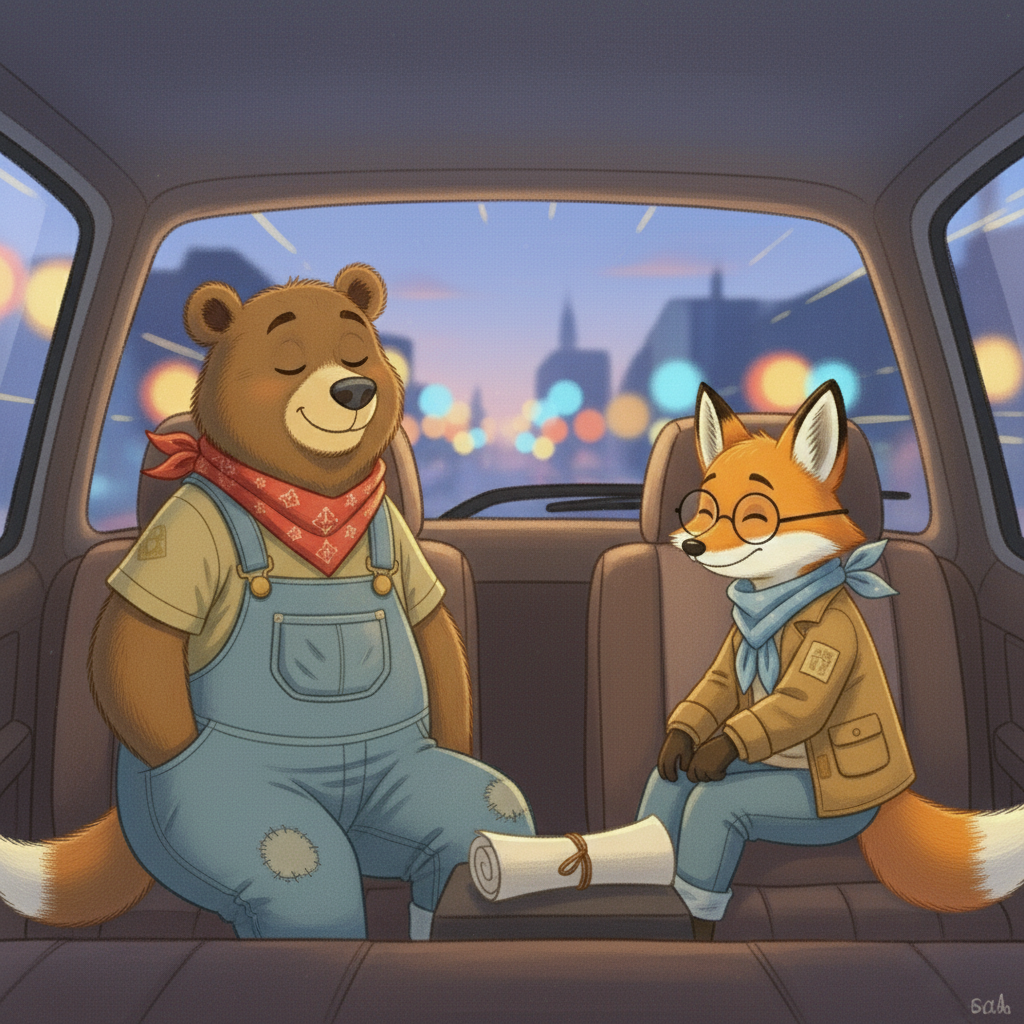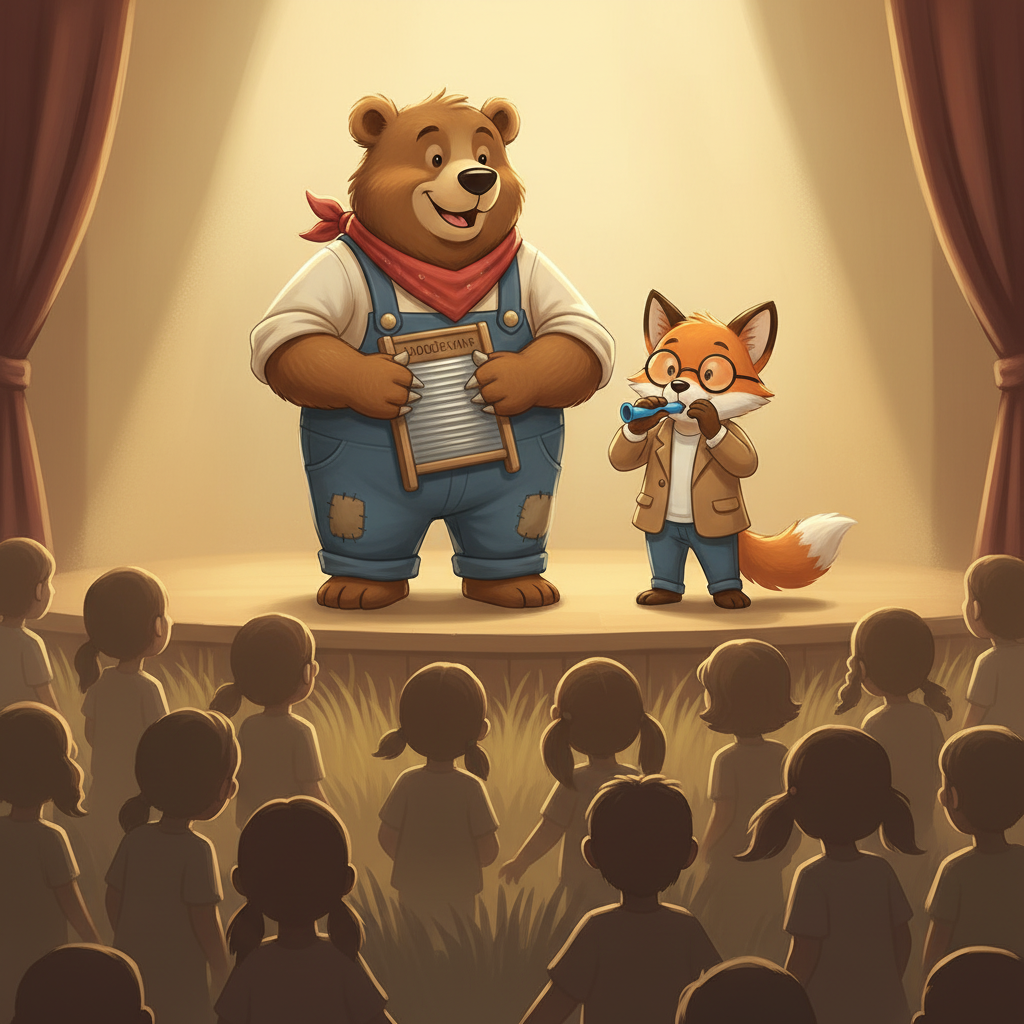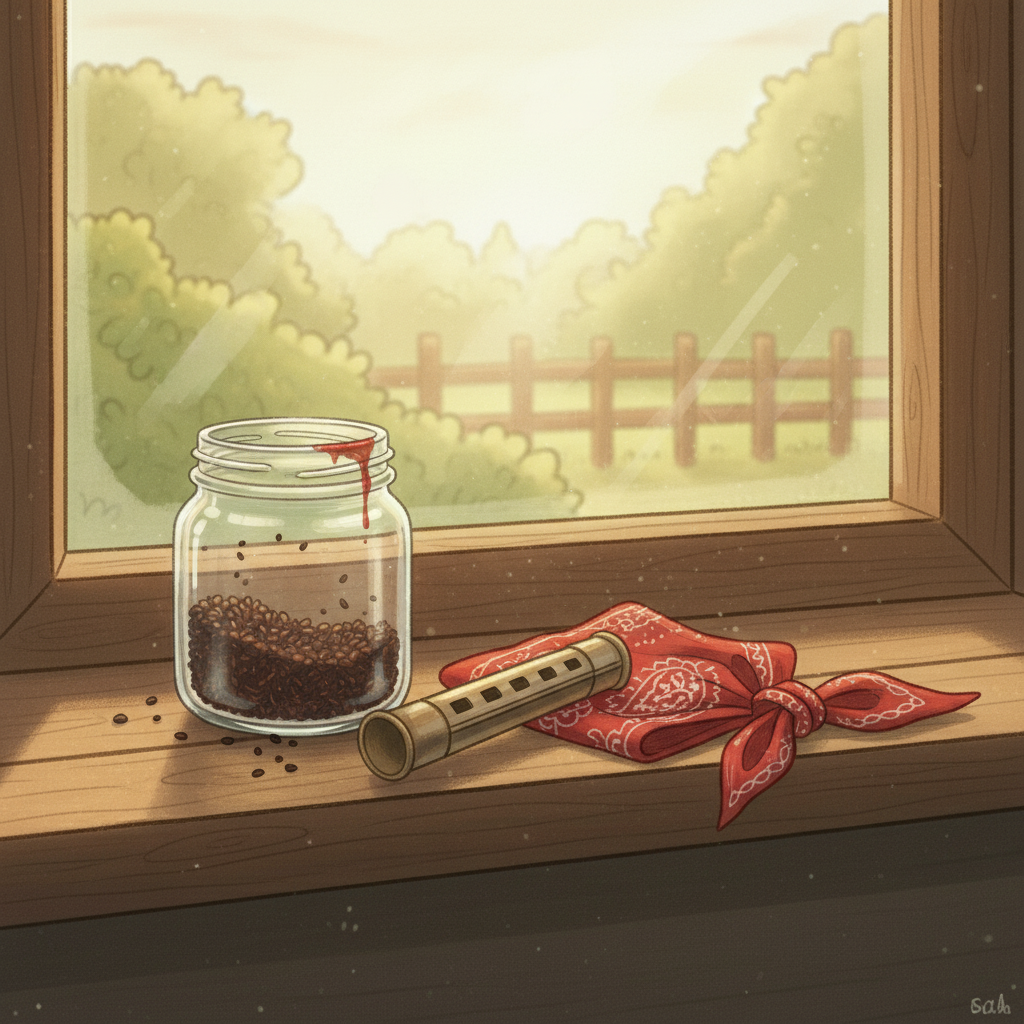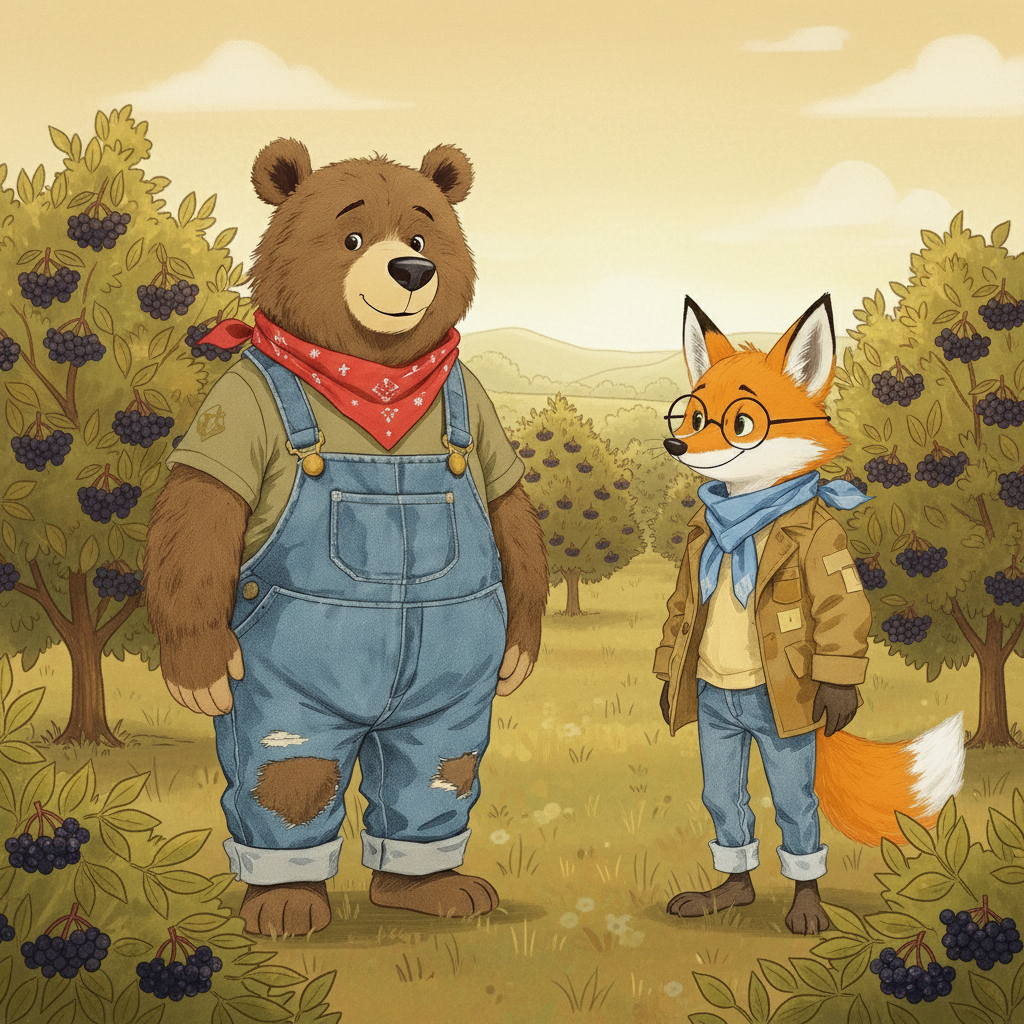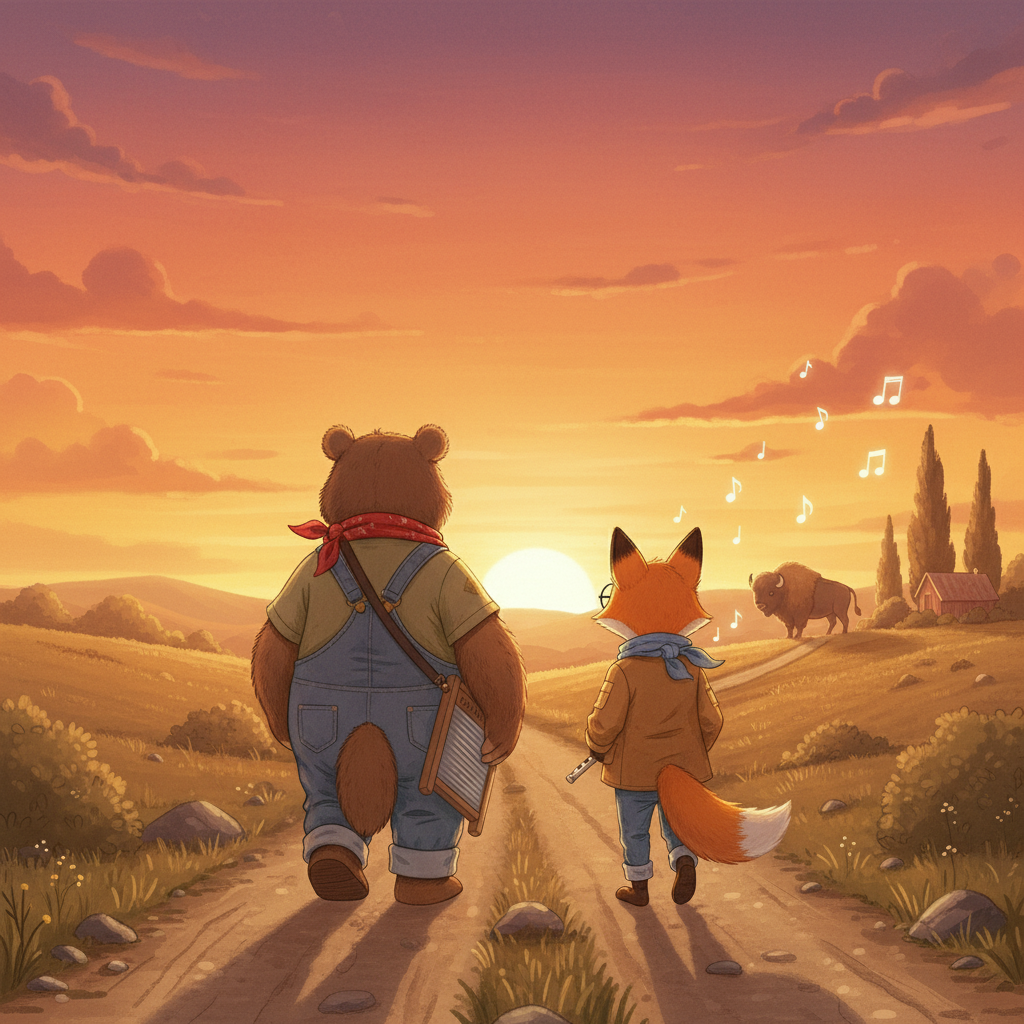Boudewijn & Houdewijn: The Tomato Stampede
One bright morning by the campfire, Boudewijn and Houdewijn argued over the last blueberry pancake.
They wrestled until Clodhopper the muskrat gave a mighty push and sent Boudewijn splashing into a shallow swamp.
After a soggy laugh, the two friends promised they would never fight again and became inseparable.
They started a tiny jug band and practiced silly songs that made the whole school clap.
A curious stork reporter wrote about them, and Principal Acra wiped his glasses in surprise—everyone loved the sound.
They celebrated with mischief that night, then decided—on a wild whisper—to go on a short trip to Europe before exams.
In Belgium they zipped by a funny parade on borrowed wheels and squealed all the way past the tall towers.
In Amsterdam they wore tiny lab coats and peered through microscopes to learn about plants and seeds.
At night they danced on lily pads, then forgot time and woke up with sleepy, starry heads.
They raced home and sat for exams with fluttering hearts, then breathed out when their papers returned A+.
Graduation caps flew like birds above them, and summer hummed like a promise.
Soon they headed for a houseboat party, but Houdewijn's belly grumbled after seven pounds of pecans the night before.
Beyond a tall fence lay the biggest patch of heirloom tomatoes they had ever imagined—rows of red like small suns.
They slipped in and munched until a sleepy bison herd rumbled awake and stampeded through the fence.
Bison tossed them like fallen apples; Boudewijn landed flat and Houdewijn dangled from a mane.
A small voice called through a bright flashlight—'You two are in big trouble!'—and Farmer Jones stepped into the light.
Farmer Jones told them the elderberry patch was ruined and that they would have to help fix it, beginning at sunrise.
He introduced Oswald, a gentle bison who smelled of hay and wore a sleepy, knowing look.
At dawn they tied ropes, fixed fences, and led scattered bison back to safety—one slow step at a time.
They planted elderberry seeds row by row, remembering their lab lessons about roots, water, and patience.
When the work felt endless, Boudewijn stiffened with a plan to rush and fix everything by himself—like always.
Houdewijn stopped him gently and said they should slow down and share the work instead—teamwork, not a race.
They tried a clever idea from Amsterdam—planting in shallow beds and mulching to keep the soil cozy and kind to shoots.
As the moon rose, tiny green tips peeked from the earth and the friends cheered like they had won a game.
But then a surprising twist: the herd had followed the boys because the music in their pockets sounded like a lullaby for lost bison.
Farmer Jones laughed, 'Your music did what my fence could not—gather them home,' and his stern face melted into a smile.
That night they brewed a small batch of elder-tonic and toasted the tiny shoots in silver tin cups.
Boudewijn learned to slow down and ask for help, and Houdewijn learned his jokes were best when they didn't skip the plan.
The farm looked nicer every morning, and the elderberry shoots grew a little stronger each day.
Farmer Jones invited them to come back anytime, and Oswald gave them a big, grateful nudge goodbye.
On the drive home they hummed a new song about mud, music, and mending fences.
At school they played the song at assembly, and the whole hall swayed as if the bison were there with them.
They kept a small jar of crushed tomato seeds on the windowsill to remind them to think before leaping.
Years later, when someone asked how the elderberry field grew, they would smile and say, 'We played—then we planted.'
They had learned that mistakes happen, and true friends fix them together—sometimes with a song.
